Premium courses offered by Wray Castle Ltd are designed for professionals seeking advanced knowledge and skills in telecommunications and technology. These courses are tailored to provide in-depth, specialized training in specific areas such as 5G, LTE, IP, radio engineering, network virtualization, and critical communications like TETRA and PMR.
With a focus on delivering high-quality, industry-relevant content, premium courses are ideal for individuals looking to enhance their expertise and advance their careers in the rapidly evolving field of telecommunications. These courses are developed by industry experts with years of experience, ensuring that learners receive the most up-to-date and relevant information.
By enrolling in a premium course, participants can expect to gain a deep understanding of complex topics, explore advanced concepts, and develop practical skills that can be applied in real-world scenarios. The courses are delivered through a combination of live sessions, self-paced modules, interactive labs, and case studies, allowing learners to engage with the material in a variety of ways.
One of the key benefits of premium courses is the personalized support and guidance provided by experienced tutors. Learners have the opportunity to ask questions, seek clarification, and receive feedback on their progress, ensuring that they are able to fully grasp the material and apply it effectively in their work.
Upon successful completion of a premium course, participants will receive a digital badge certifying their achievement. This recognition can enhance their professional profile, demonstrate their expertise to employers, and open up new opportunities for career advancement.
Overall, premium courses offered by Wray Castle Ltd are a valuable investment for professionals looking to stay ahead in the fast-paced world of telecommunications and technology. With access to cutting-edge content, expert guidance, and industry recognition, learners can take their skills to the next level and achieve their career goals.
Premium Courses
-
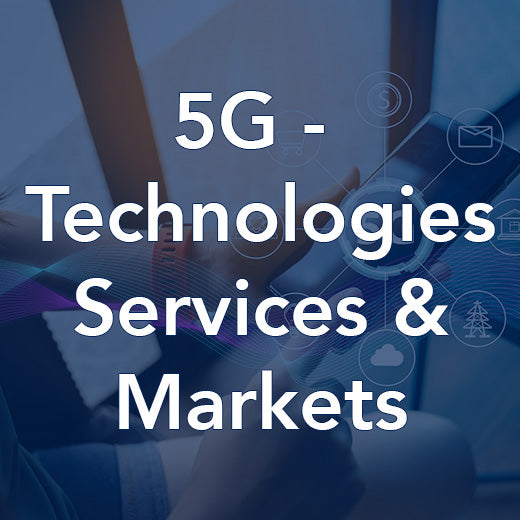
5G Technologies, Services and Markets
Course Summary This course is a non-technical introduction to the 5G mobile communication system, including its capabilities, general structure and operation, as well as its position as a development of previous technologies. The course also covers the place that 5G holds in the telecommunications market, and how that is developing. This 1-day training course is designed to provide a comprehensive overview of 5G technologies, services, and markets. The course covers the basics of 5G mobile communication systems, including their capabilities, structure, and operation, as well as their evolution from previous technologies. Participants will also gain insights into the current landscape of the telecommunications market and the role that 5G plays in shaping its future. Ideal for non-technical professionals in the mobile or fixed telecommunications sector, this course requires no prior technical knowledge but some familiarity with the industry would be beneficial. Topics covered include an introduction to 5G, market drivers, use cases, performance objectives, key features, network architectures, voice services, industry players, standardization, and the relationship between 5G, LTE, and Wi-Fi. By enrolling in this course, participants will gain a solid understanding of 5G technologies and their impact on the telecommunications industry. Stay ahead of the curve and enhance your knowledge with this engaging and informative training opportunity. Who would benefit This course is intended for non-technical professionals either new to, or already working in, the mobile or fixed telecommunications sector. Prerequisites No technical knowledge is assumed but some familiarity with the telecommunications industry would be beneficial. Topic Areas Include Introduction to 5G Market drivers for 5G Use cases for 5G Performance objectives and spectrum requirements Concepts and key features of 5G Architecture of the core and radio access networks of 5G Voice services in 5G Key industry and market players Standardisation and timelines for 3GPP and the ITU 5G, LTE and Wi-Fi – a holistic approach
POA: Private Course
-

5G Technologies, Services and Markets (On-Demand)
This 5G Technologies, Services and Markets on-demand course is a non-technical introduction to the 5G mobile communication system, including its capabilities, general structure and operation, as well as its position as a development of previous technologies. The course also covers the place that 5G holds in the telecommunications market, and how that is developing. This 1-day training course is designed to provide a comprehensive overview of 5G technologies, services, and markets. The course covers the basics of 5G mobile communication systems, including their capabilities, structure, and operation, as well as their evolution from previous technologies. Participants will also gain insights into the current landscape of the telecommunications market and the role that 5G plays in shaping its future. Ideal for non-technical professionals in the mobile or fixed telecommunications sector, this course requires no prior technical knowledge but some familiarity with the industry would be beneficial. Topics covered include an introduction to 5G, market drivers, use cases, performance objectives, key features, network architectures, voice services, industry players, standardization, and the relationship between 5G, LTE, and Wi-Fi. By enrolling in this course, participants will gain a solid understanding of 5G technologies and their impact on the telecommunications industry. Stay ahead of the curve and enhance your knowledge with this engaging and informative training opportunity. This self-paced on-demand distance learning course features illustrated course books, videos, tests and full tutor support. Who would benefit This course is intended for non-technical professionals either new to, or already working in, the mobile or fixed telecommunications sector. Prerequisites No technical knowledge is assumed but some familiarity with the telecommunications industry would be beneficial. Topic Areas Include Introduction to 5G Market drivers for 5G Use cases for 5G Performance objectives and spectrum requirements Concepts and key features of 5G Architecture of the core and radio access networks of 5G Voice services in 5G Key industry and market players Standardisation and timelines for 3GPP and the ITU 5G, LTE and Wi-Fi – a holistic approach
£95.00
-
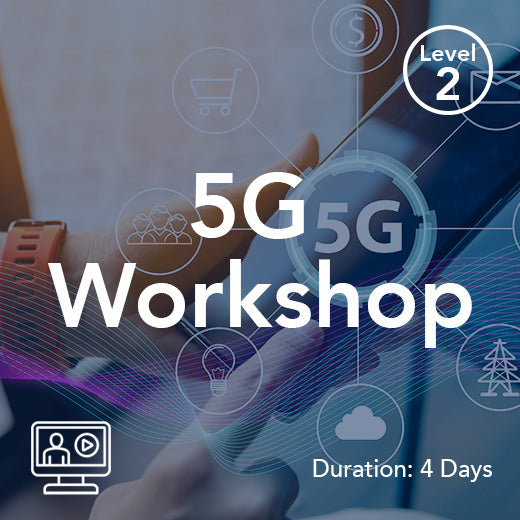
5G Workshop
This intensive 4-day 5G workshop delves into the commercial aspects of 5G and the transformative capabilities it brings to telecommunications companies, emerging players in the communications industry, and other related sectors. Participants will gain a comprehensive understanding of how 5G technologies such as New Radio, NG-RAN, and SBA (Service Based Architecture) facilitate flexibility, cost efficiency, diverse deployment scenarios, and new use cases to support existing and emerging business models. The workshop also explores the pivotal role of 5G in enabling a new phase of connectivity and innovation, paving the way for a wide array of business opportunities and models. In addition to the commercial aspects, this workshop provides a technical introduction to 5G, covering the principles, design, and implementation of the 5G air interface, radio access network, and core network, as well as the operational aspects of the 5G system. Participants will gain insights into the technical intricacies of 5G technology and how it underpins the next generation of connectivity and business innovation. By the end of the workshop, attendees will be equipped with the knowledge and tools to capitalize on the opportunities presented by 5G within their organizations and beyond. Prerequisites To gain maximum benefit, participants should have a relatively rounded background in telecommunications or adjacent industries (whether technical, commercial, or both). Course Timetable Day 1 Day 2 Day 3 Day 4 AM The Telecoms Environment 5G as a Key Business Enabler for Ongoing Connectivity Connected Innovation – A New Universe for Connectivity Supporting New Use Cases Principles of the 5G New Radio 5G Network Architecture PM 5G – A Framework for Cost Control 5G Strategy 5G Air Interface 5G Procedures Releases 16 and 17 Optional 5G Virtual Lab Module Explore, Test, Optimise, and Troubleshoot the 5G System Deep dive into the key signalling scenarios in the 5G system and analyse the output to build a deeper understanding that goes beyond the theoretical. The lab is a fully emulated 5G System environment that enables you to experiment with the configurations for Network Functions and build customized settings for signalling scenarios that helps you to develop greater insight into the operation of the 5G System. Lab modules can be added to any relevant 5G course. Learn more and arrange a demo.
POA: Private Course
-

5G – Standalone, Enablers for the Industry & Business Perspective (On-Demand)
With SA 5G, we witness the evolution of mobile networks, from being reliant on legacy infrastructure, to achieving true independence - and unlocking unprecedented capabilities that enables 5G to support a much wider range of industrial use cases. In this course, we guide you through the benefits and challenges of deploying Standalone 5G, exploring its architectural advancements, unique features, and the benefits it brings to both consumers and businesses. We then highlight the enhanced capabilities and expanded use cases made possible by key technology enablers - including network slicing, edge computing, virtualization, non-terrestrial networks (NTNs), network exposure, and network automation. We discuss the impact of 5G SA for network operators, service providers, and enterprises - exploring the opportunities and challenges that arise in the deployment and management of advanced 5G networks. Who Would Benefit Ideal for anyone needing clarity on 5G trajectory – including capabilities & use cases Prerequisites A basic appreciation of the telecoms landscape – both technical and business Course Contents 5G Base Capabilities A Business Perspective 5G Standalone (SA) 5G Enablers for Industry
£95.00
-

5G/6G Essential Protocols and Procedures (Training & IEEE Innovation Testbed)
Transformative Training Powered by IEEE and Wray Castle Powered by the joint expertise of IEEE and Wray Castle, the 5G/6G Essential Protocols & Procedures Training and Innovation Testbed offers a comprehensive exploration of 5G’s most crucial protocols and procedures. This cutting-edge course blends robust theory with hands-on practice via the IEEE 5G/6G Innovation Testbed - a secure, cloud-based platform providing end-to-end 5G network testing capabilities. The Key Protocols & Procedures Putting Theory Immediately into Practice 5G Registration Process - Identities, Authentication, Subscriber Data Network Functions & Interactions - UDM, UDR, PCF, AMF, SMF, UPF PDU Session Establishment - End-to-End signaling and network slicing PFCP & N4 Signaling -Policy and Session Management in 5G Specifically designed for: System engineers and integrators Engineers working with operation, optimization, and troubleshooting Technical professionals responsible for 5G System signaling
£1,045.00
-
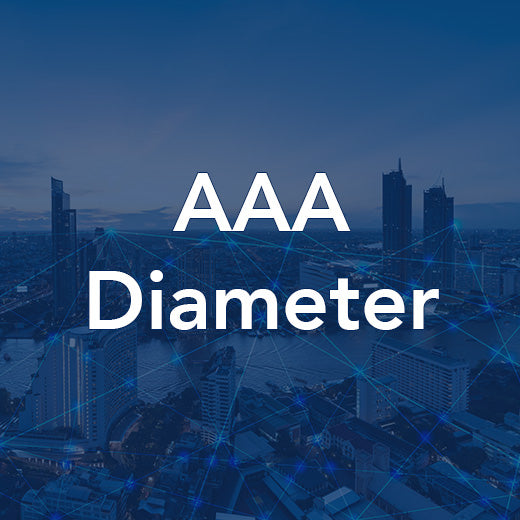
AAA Diameter
Course Summary RADIUS is used essentially to introduce the topic and provide a progression towards Diameter with the main emphasis being on the newer Diameter protocol. The course will also delve into the deployment of Diameter as seen by modern telecoms in particular. After looking at Diameter in detail the course will review how it is being implemented into 3GPP’s IMS and LTE network architectures. Our AAA Diameter Training Course is a comprehensive program designed to provide engineers working in equipment manufacturing and network operations with a deep understanding of Diameter protocol. Over 2 days and 4 live online sessions, participants will delve into the intricacies of Diameter, its deployment in modern telecom networks, and its integration into 3GPP's IMS and LTE architectures. The course covers a range of topic areas, including an introduction to RADIUS and Diameter, Diameter transports, the Diameter base protocol and entities, Diameter operations and extensibility, Diameter accounting protocol, Diameter security, and its implementation in IMS and the Evolved Packet Core. Participants will gain valuable insights into the latest advancements in Diameter technology and its practical applications in the telecom industry. With no major prerequisites required, this course is ideal for professionals looking to enhance their knowledge of modern telecommunications networks and stay ahead in the rapidly evolving telecom landscape. Join us for this in-depth training program and take your expertise in Diameter protocol to the next level. Who would benefit This course is primarily designed for engineers working for equipment manufacturers and for network operators who are involved in equipment design, manufacturing, network planning, network optimization, strategy determination and deployment of RADIUS and Diameter technologies. Prerequisites There are no major prerequisites, but to maximise the benefits of this course a good understanding of the architecture of modern telecommunications networks including IMS and LTE would be advantageous as well as a reasonable understanding of the MAP protocol and the messages used to support a mobile device for registration and location updates. A grasp of SCTP as used in SIGTRAN would also be beneficial. Topic Areas Include Introduction to RADIUS and Diameter Diameter Transports The Diameter Base Protocol and Entities Investigating Diameter Base Protocol Diameter Operations and Extensibility Diameter Accounting Protocol Diameter Security Diameter in IMS Diameter in the Evolved Packet Core
POA: Private Course
-

AF Influence on Traffic Routing (Lab Workshop)
The Lab allows you to analyse, test and understand the Influencing Traffic-Routing initiated by an AF and the details of traffic routing to develop a deep understanding of the protocols involved. The cloud-based lab provides participants with access to a fully emulated 5G System environment. Experiment with the configurations for various Network Functions within the 5G Core Network and build customized settings for signalling scenarios that will enable users to develop greater insight in to the operation of the 5G System. AF Influence on Traffic Routing Message Flow Explore the Influencing Traffic-Routing initiated by an AF and the intricacies of traffic routing to develop a comprehensive understanding of the protocols involved: AF/P-CSCF PCF and SM Policy Control Analyses of the SMF behaviour Signalling done by HTTPv2 and PFCP protocols. Lab Features & Benefits Through a combination of hands-on experience and guided instruction our virtual labs allow users to explore signalling procedures in the 5G system. Our labs feature: A simulated 5G network - Provides hands-on experience and reinforces theoretical knowledge. Guided exercises for signalling scenarios - makes learning and applying new concepts straightforward. Wireshark (pcap) output files – detailed output files provide deep system insight. Cloud-based lab - available 24/7 on any connected device. Individual dedicate server - Ensures that your work is kept private and secure. Ongoing trainer support - ensures you get expert advice when needed. Full integration with Wray Castles training programmes - allows you to build bespoke learning pathways for specialist teams across your organisation. You can find more information on our labs and arranges a demo here.
POA: Private Course
-
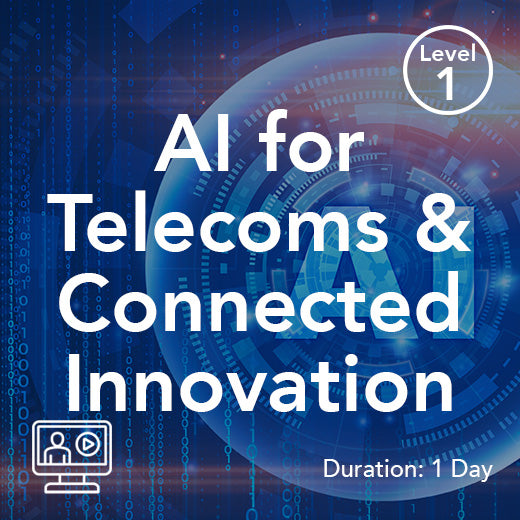
AI for Telecoms and Connected Innovation
Artificial intelligence (AI) is revolutionizing the telecoms industry and driving connected innovation to new heights. This comprehensive course delves into the role of AI in telecoms and explores its various applications, from machine learning to natural language processing, computer vision, and robotics. Participants will acquire a solid understanding of how AI is reshaping telecoms networks to be more efficient and sustainable, as well as its integration into evolving architectures to support cutting-edge use cases like the Metaverse, Intelligent Transportation, and Autonomous Driving. Moreover, the course highlights the synergy between AI and the Internet of Things (IoT), forming the powerful concept of AIoT (Artificial Intelligence of Things). Participants will discover how AI is catalyzing innovation across industries, enabling smarter cities, more efficient manufacturing processes, and personalized healthcare solutions. By the end of the program, participants will be well-versed in AI concepts and techniques, ready to apply their knowledge in telecoms and beyond. Whether pursuing further studies in AI or leveraging their expertise in diverse domains, participants will be equipped to navigate the exciting intersection of AI and telecoms innovation. In a rapidly evolving digital landscape, understanding the fundamentals of AI is essential for professionals in the telecoms industry. This course not only equips participants with practical skills in AI but also instills a deep appreciation for the ethical considerations and responsible implementation of AI technologies. With a focus on real-world applications and industry relevance, this course empowers participants to leverage AI to drive innovation, enhance efficiency, and unlock new possibilities in the dynamic realm of telecoms and connected innovation. Course Contents Introduction to Artificial Intelligence Machine Learning Applying Machine Learning to AI Natural Language Processing (NLP) Computer Vision Robotics and Autonomous Systems AI in Industry AIoT (Artificial Intelligence of Things) Ethics and Responsible AI
£980.00
-
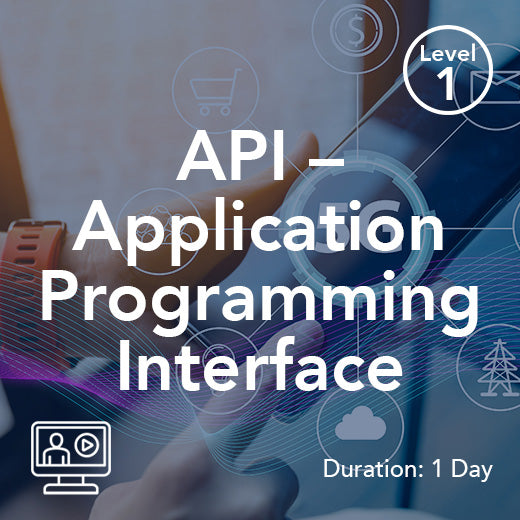
API – Application Programming Interface
For those looking to gain a comprehensive understanding of APIs and their application in Web Services and 5G Core Networks, the 1-day API Application Programming Interface course offered by Wray Castle is the perfect choice. This course is designed for individuals who want to delve into the intricacies of API standards, definitions, and their relevance in the realm of Web Services and 5G technology. Led by seasoned telecommunications trainer Maziar Shoaie, participants will explore topics such as 3GPP and 5G APIs, as well as the fundamentals of 5G Service Based Architecture (SBI). Participants are encouraged to have some prior knowledge or experience in packet-switched data network operations and Internet technology, along with a general understanding of 4G and 5G networks. Through a combination of theoretical learning and practical insights, attendees will gain valuable insights into the world of APIs and their significance in modern telecommunications. Join us for this intensive 1-day course and enhance your understanding of APIs in the context of Web Services and 5G Core Networks. Prerequisites Some knowledge or experience of packet-switched data network operation and Internet technology is beneficial. General knowledge about 4G and 5G. Course Contents Introduction to API API Standards and Definition API and Web Services 3GPP and 5G APIs 5G Service Based Architecture (SBI) Course Director: Maziar Shoaie Maziar is a seasoned telecommunications trainer with over 23 years of experience. He has delivered courses in more than 45 countries to customers from all over the world, including operators, vendors, and integrators. He is a core-network specialist with expertise in 2G, 3G, 4G, and 5G networks. and the developer of the Wray Castle 5G Lab and Workshop.
£980.00
-
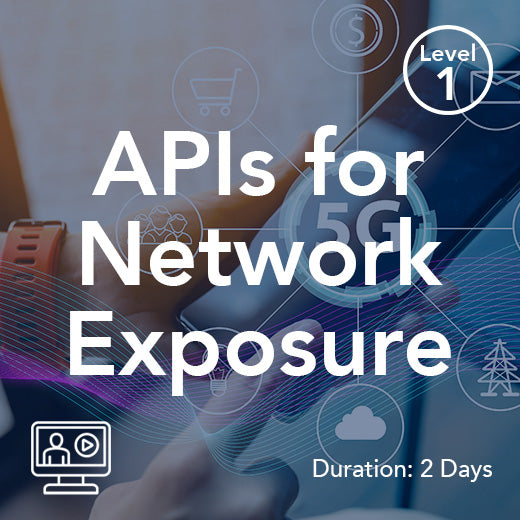
APIs for Network Exposure - From 3GPP Standards to Open Gateway Initiatives
Data networks are the foundation of modern communication systems, making it crucial for professionals in telecoms, IT, and related fields to have a strong grasp of networking fundamentals. Wray Castle's FN22SH Data Networks course offers a concise and accessible overview of how data networks function, setting the stage for further exploration in networking, internet technologies, or telecommunications. In just three hours, participants will delve into essential concepts such as the structure of data networks, packet-switching, Ethernet protocol, and the TCP/IP model that drives internet communication. This course also sheds light on key internet operations and services, providing valuable insights into the global connectivity infrastructure. Designed for technical professionals and beginners with minimal experience, FN22SH Data Networks is a perfect starting point for individuals looking to gain confidence in the principles of data networking. By the end of the course, participants will have a solid understanding of how data moves efficiently and reliably across digital systems, empowering them to navigate the intricacies of modern communication networks with ease. With a curriculum covering topics like background to computer networking, packet-switching principles, Ethernet protocol, TCP-IP, and internet operations and services, participants will gain a comprehensive understanding of the fundamental principles that underpin data networks. Whether you are new to the field or seeking a refresher, this course equips you with the essential knowledge needed to comprehend the intricate workings of data networking in today's interconnected world. Prerequisites Basic understanding of telecommunications concepts. Some knowledge or experience of packet-switched data network operation and Internet technology is beneficial. General knowledge about 4G and 5G. Course Contents Introduction to Network Applications API Standards and Definition Protocols for APIs communication and Modelling Languages API Development Tools (Demo) NEF Services APIs NEF Procedures Future trends in API Integration Course Director: Maziar Shoaie Maziar is a seasoned telecommunications trainer with over 23 years of experience. He has delivered courses in more than 45 countries to customers from all over the world, including operators, vendors, and integrators. He is a core-network specialist with expertise in 2G, 3G, 4G, and 5G networks. and the developer of the Wray Castle 5G Lab and Workshop.
£1,815.00
-
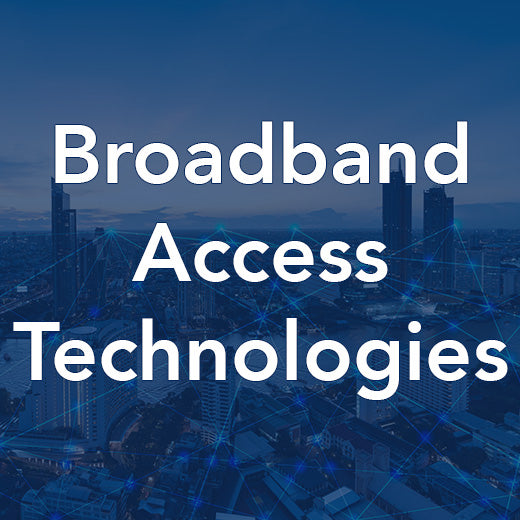
Broadband Access Technologies
Course Summary This course introduces delegates to the broadband technologies and access methods that are available to fixed- and mobile-network operators. Topics covered include ISPs, ADSL, ADSL2, DSL, VDSL and fibre-optic networks, as well as WiMAX, Wi-Fi, UMTS and LTE. The learning is underpinned by group exercises. Broadband access technologies are constantly evolving, and staying up-to-date with the latest advancements is crucial for network operators. Our Broadband Access Technologies Training Course is designed to provide delegates with a comprehensive understanding of various broadband technologies and access methods used in both fixed and mobile networks. From ISPs and DSL to fibre-optic networks, WiMAX, Wi-Fi, UMTS, and LTE, this course covers a wide range of topics essential for technical and semi-technical management staff in the telecommunications industry. Participants will delve into the broadband market, DSL technologies, fibre optic systems, fixed wireless access, satellite broadband, and much more. Group exercises are included to reinforce learning and provide practical insights into broadband deployment strategies. While a basic understanding of digital communications techniques is beneficial, it is not a prerequisite for this course. Equip yourself with the knowledge and skills needed to navigate the complex world of broadband access technologies by enrolling in our training course. Stay ahead of the curve and gain a competitive edge in the telecommunications industry with Wray Castle's expert-led training sessions. Who would benefit Technical and semi-technical management staff requiring an overview of the technologies and techniques employed by wired and wireless broadband access systems. Prerequisites A basic understanding of digital communications techniques would be an advantage, but is not essential. Topic Areas Include The broadband market DSL – technologies, architecture, access, backhaul Powerline broadband Fibre optic and cable systems Fibre to the home and cabinet Fixed wireless access systems Satellite broadband and high altitude platforms Wi-Fi hotspot, wide area and ‘municipal’ networks UMTS fixed and 3G mobile broadband Fixed and Mobile WiMAX LTE and UMB Broadband deployment strategies Includes group exercises.
POA: Private Course
-
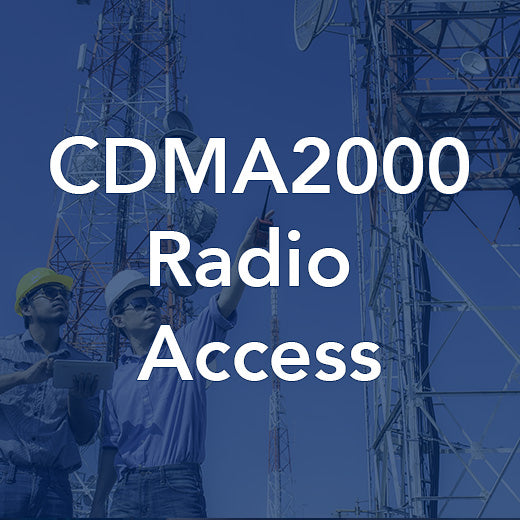
CDMA2000 Radio Access
Course Code: MB2103 Course Summary This course begins with an overview of CDMA2000™ origins, the key standardization work as well as general network architecture. The course continues with an engineering overview of CDMA operation in a 3G context; one of the underpinning technologies and is followed by a brief review of cdmaOne™. This 2-day CDMA2000™ Radio Access training course provides a comprehensive overview of CDMA2000™ technology, including its origins, key standardization work, network architecture, and engineering principles in a 3G context. Ideal for engineering staff working on CDMA access networks, this course covers the operation and capabilities of CDMA2000™ 1x and 1xEV-DO systems. Participants should have a good understanding of modern digital cellular communication techniques and some experience with cdmaOne/IS-95 operation. The course covers a range of topic areas, including the evolution of 3G network architecture, cdmaOne overview, CDMA principles in 3G systems, access and core network elements and interfaces, 1x and 1xEV options for CDMA2000™, radio link higher-layer protocols, Link Access Control (LAC) protocol, Medium Access Control (MAC) protocol, 1xEV-DO protocol stack, 1x and 1xEV-DO channels, 1x and 1xEV-DO physical layer structure, and system access, call processing, and handover. Join us for this in-depth training to enhance your understanding of CDMA2000™ Radio Access technology. Who would benefit Engineering staff working on CDMA access networks requiring an understanding of the operation and capabilities of the CDMA2000™ 1x and 1xEV-DO systems. Prerequisites A good understanding of modern digital cellular communication techniques and, ideally, some experience of cdmaOne/IS-95 operation. Topic Areas Include Evolution of 3G network architecture cdmaOne overview CDMA principles in 3G systems Access and core network elements and interfaces 1x and 1xEV options available for CDMA2000™ Radio link higher-layer protocols Link Access Control (LAC) protocol Medium Access Control (MAC) protocol 1xEV-DO protocol stack 1x and 1xEV-DO channels 1x and 1xEV-DO physical layer structure System access, call processing and handover
POA: Private Course
-
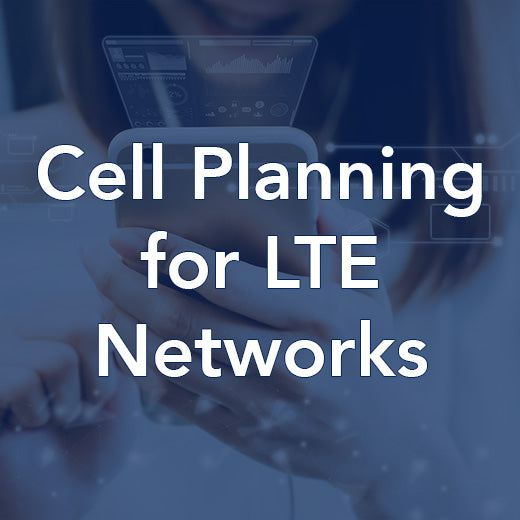
Cell Planning for LTE Networks
Course Summary An introduction to the changes required in the techniques, skill sets and tools for planning LTE networks. This includes link budgets, mixed traffic dimensioning, coverage considerations and tool configuration parameters. All aspects are reinforced through classroom exercises and planning-tool illustrations. Our Cell Planning for LTE Networks training course is designed to provide participants with the necessary skills and knowledge to plan LTE networks effectively. Over the course of 2 days, attendees will learn about LTE planning philosophy, coverage planning, link budgets, LTE cell parameters, RACH planning, traffic analysis, dimensioning for capacity, frequency planning, planning for VoLTE, predictions and simulations, co-siting issues with legacy technologies, and RF exposure limits. Through a combination of classroom exercises and planning-tool illustrations, participants will gain a comprehensive understanding of the changes required in techniques, skill sets, and tools for planning LTE networks. This course is ideal for individuals involved in cell planning, configuration, or optimization of LTE-based networks. It assumes existing knowledge of basic cell planning principles and familiarity with the cell planning role. By the end of the training, participants will be equipped with the necessary tools and techniques to effectively plan LTE networks and ensure optimal performance. Join us for this insightful and practical training course to enhance your skills and expertise in LTE network planning. Who would benefit This course is intended for those involved in cell planning, configuration or optimization of LTE-based networks. Prerequisites This course assumes existing knowledge of basic cell planning principles and familiarity with the cell planning role. Topic Areas Include LTE planning philosophy Coverage planning and link budgets LTE cell parameters RACH planning Traffic analysis Dimensioning for capacity Frequency planning Planning for VoLTE Predictions and simulations Co-siting issues with legacy technologies RF Exposure limits Includes exercises.
POA: Private Course
-
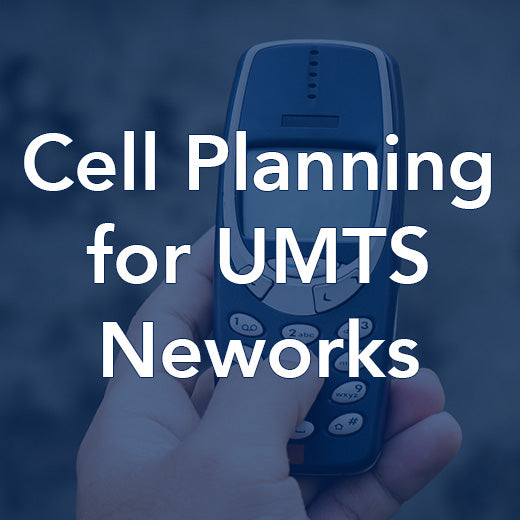
Cell Planning for UMTS Networks
Course Summary Expand your cell planning skills with our Cell Planning for UMTS Networks training course. This 2-day course is designed for experienced GSM cell planners looking to transition into planning WCDMA networks. Gain a comprehensive understanding of the differences in techniques and tools required for successful UMTS network planning. Who would benefit from this course? Experienced cell planners seeking to enhance their skills in planning Frequency Division Duplex (FDD) UMTS networks. Prerequisites include prior experience with UMTS network operation and basic radio awareness, or previous attendance on our UMTS Air Interface course (MB2002). Topics covered in this course include the WCDMA planning philosophy, UMTS structure review, scrambling codes, coverage predictions, link budgets, HSPA link budgets, cell load analysis, cell breathing, traffic analysis, predictions and simulations, Monte Carlo simulations, and co-siting GSM and WCDMA equipment. Elevate your cell planning expertise with our Cell Planning for UMTS Networks training course. Who would benefit This course provides experienced cell planners with an introduction to the differences required in technique, skill sets and tools for planning Frequency Division Duplex (FDD) UMTS networks. Prerequisites Experience of UMTS network operation, as well as basic radio awareness, or previous attendance on the UMTS Air Interface course (MB2002). Topic Areas Include The WCDMA planning philosophy Review of UMTS structure Review of UMTS logical, transport and physical channels Scrambling codes WCDMA considerations Coverage predictions Link budgets HSPA link budgets Analysis of cell load Cell breathing Traffic analysis Predictions and simulations Monte Carlo simulations Co-siting GSM and WCDMA equipment
POA: Private Course
-

Cloud Computing
Our Cloud Computing Training Course provides a technical introduction to the fundamental techniques and protocols that support cloud computing services. Participants will gain insight into the various types of clouds that can be created and the wide range of 'X as a service' offerings available through cloud platforms. This course is ideal for engineering professionals, technical managers, and sales/marketing staff seeking a comprehensive technical overview of Cloud Computing. Participants should have a basic understanding of internet architecture and technologies to fully benefit from this course. Our expert instructors will cover essential topics such as 'What is ‘The Cloud’?', Cloud Architecture and Technologies, Advanced Cloud Architecture Technologies, Types of Cloud Service, Pros and Cons of Cloud Computing, and Telecoms Services and the Cloud. By the end of the course, participants will have a solid understanding of cloud computing principles and how they can be applied in a variety of industries. Who would benefit This course is suitable for engineering, technical management and sales/marketing staff who require a technical overview of Cloud Computing. Prerequisites A basic understanding of the architecture and technologies that support the internet would be beneficial. Course Modules: What is ‘The Cloud’? Cloud Architecture and Technologies Advanced Cloud Architecture Technologies Types of Cloud Service Pros and Cons of Cloud Computing Telecoms Services and the Cloud
POA: Private Course
-

Cloud Computing (On-Demand)
Our Cloud Computing Training Course provides a technical introduction to the fundamental techniques and protocols that support cloud computing services. Participants will gain insight into the various types of clouds that can be created and the wide range of 'X as a service' offerings available through cloud platforms. This course is ideal for engineering professionals, technical managers, and sales/marketing staff seeking a comprehensive technical overview of Cloud Computing. Participants should have a basic understanding of internet architecture and technologies to fully benefit from this course. Our expert instructors will cover essential topics such as 'What is ‘The Cloud’?', Cloud Architecture and Technologies, Advanced Cloud Architecture Technologies, Types of Cloud Service, Pros and Cons of Cloud Computing, and Telecoms Services and the Cloud. By the end of the course, participants will have a solid understanding of cloud computing principles and how they can be applied in a variety of industries. Who would benefit This course is suitable for engineering, technical management and sales/marketing staff who require a technical overview of Cloud Computing. Prerequisites A basic understanding of the architecture and technologies that support the internet would be beneficial. Topic Areas Include What is ‘The Cloud’? Traditional Models vs Cloud Computing Cloud characteristics Cloud deployments models – private, community, public, hybrid Enabling technologies Traditional data centres Virtualization and multi-tenanting SOA and web services Service grids and autonomic computing Types of Cloud services SaaS, PaaS and IaaS XaaS payment models Pros and Cons of Cloud Computing Pros: cost, scalability, resilience, collaboration Cons: security, availability, trust, de-skilling The future of Cloud Computing On-Demand Online Training Accessible on any device on-demand online training allows you to study at a time and location convenient to you. Each course includes: Illustrated Course Books - featuring leading-edge knowledge from subject matter experts. Videos - Detailed videos expand the points covered in the course books. Tutor Support – Connect with leading experts, ask questions to deepen your understanding. Formative Assessment - Modules include regular quizzes to support learning. Certification – Complete the end-of-module tests to earn Digital Badges to demonstrate the depth of your knowledge of the topic. Included in Wray Castle Hub This course is also available as part of the Wray Castle Hub. An annual subscription delivers unlimited access to this course and over 500 hours of learning material consisting of 30+ Courses, 190+ Learning Modules, and 1,000+ Videos. Annual Subscription: £1400 (Most cost-effective option) Subscribe to Wray Castle Hub here
£500.00
-
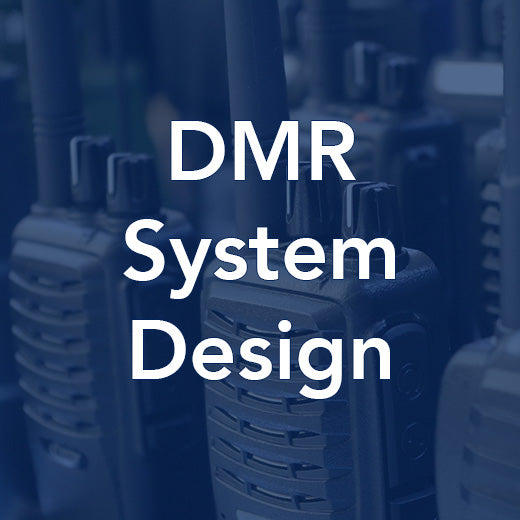
DMR System Design
Course Summary The topics covered in this course will enable those working in radio system design, specification and optimization to plan and configure DMR networks. The course contains detailed descriptions of the key aspects of the DMR radio link including higher-layer signalling, protocol interactions and media processing aspects as well as lower-layer functions such as modulation, radio performance and channel coding. Our DMR System Design Training Course is designed to provide a comprehensive understanding of planning and configuring DMR networks for radio system design, specification, and optimization. This course covers key aspects of the DMR radio link, including higher-layer signaling, protocol interactions, media processing, modulation, radio performance, and channel coding. Engineers working in radio system design who require detailed knowledge of Tier I, Tier II, and Tier III DMR systems will benefit greatly from this training. Participants should have familiarity with designing mobile radio systems or have attended our Radio System Design course (RP1101) before enrolling in this training. The 2-day course consists of 4 live online sessions from 0900-1230, where industry experts will delve into topics such as DMR specifications, voice, short data, and data services, frequency allocation, numbering, dialing plans, protocol architecture, air interface Physical Layer, Data Link Layer, Call Control Layer, random access procedures, capacity and coverage planning, transmitter and receiver performance, and more. Join us for our DMR System Design Training Course to enhance your skills and knowledge in planning and configuring DMR networks for optimal performance and efficiency in radio system design. Who would benefit Engineers working or involved in radio system design who require a detailed understanding of the planning, optimization and configuration aspects of Tier I, Tier II and Tier III DMR systems. Prerequisites Familiarity with the principles and techniques of designing mobile radio systems, or previous attendance on the Radio System Design course (RP1101). Topic Areas Include Introduction to DMR specifications DMR voice, short data and data services Tier I, Tier II and Tier III operation and functionality DMR frequency allocation DMR numbering and dialling plans Overview of the protocol architecture Air interface Physical Layer (layer 1) Data Link Layer (layer 2) Call Control Layer (layer 3) Random Access procedures Control channel acquisition and retention Registration, power save and authentication Capacity and coverage planning DMR Transmitter and receiver performance Message, transmission and quasi-transmission trunking
POA: Private Course
-
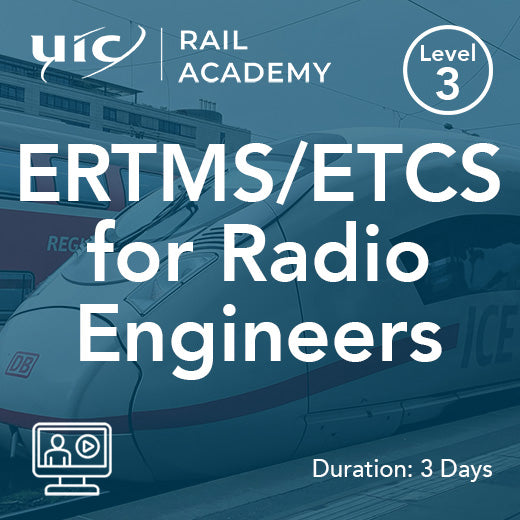
ERTMS/ETCS for Radio Engineers (Live)
The European Railway Traffic Management System (ERTMS) is a crucial rail project in Europe, aiming to replace disparate train control systems with the European Train Control System (ETCS). Our 3-day training course provides an in-depth look at ETCS and focuses on utilizing GSM-R with or without GPRS as a bearer for ETCS signaling. This course is part of the UIC Rail Academy and is certified by the Institution of Railway Signal Engineers (IRSE). Participants in this course should have a basic understanding of GSM-R networks. Topics covered include ERTMS standards and legislation, system architecture, operating modes, protocols, circuit-switched signaling, GPRS for ETCS, radio network optimization, and more. Upon completion, attendees will have a comprehensive understanding of how GSM-R technologies can support the implementation of ETCS in railway systems. For those looking for a more flexible learning option, this course is also available as a self-paced online training course. Visit our website to learn more about how you can enhance your knowledge of ERTMS/ETCS for radio engineers at your own pace. Part of UIC Rail Academy. Prerequisites Delegates attending this course should be familiar with the principles of GSM-R networks. Topic Areas Include ERTMS Standards and Legislation Basic System Description System Architecture ERTMS Operating Modes ERTMS/ETCS Protocols Circuit Switched Signalling Circuit Switched Connections GPRS for ETCS The GPRS Air Interface GPRS Procedures Transmission through the Network Radio Network Optimization Certified by Institution of Railway Signal Engineers (IRSE) The Institution of Railway Signal Engineers (IRSE) certifies that the syllabus for the ERTMS/ETCS for Radio Engineers course is appropriate for meeting the stated objectives of that course. For more information about the scope of the certification process provided by the IRSE please see the IRSE website www.irse.org. Also available as a Self-Paced Online Training Course, learn more
£2,660.00
-
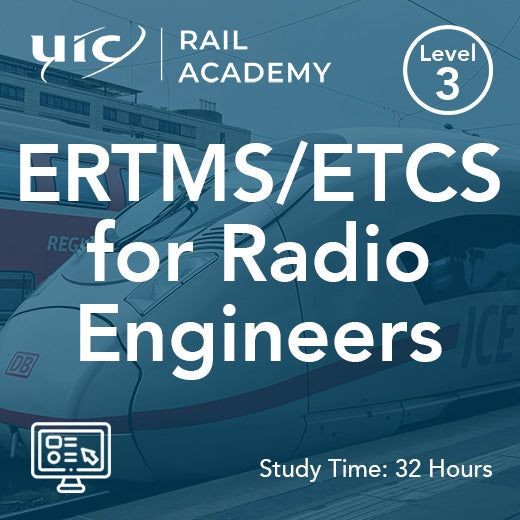
ERTMS/ETCS for Radio Engineers (On-Demand)
The European Railway Traffic Management System (ERTMS) is a crucial rail project in Europe, aiming to replace disparate train control systems with the European Train Control System (ETCS). Our 3-day training course provides an in-depth look at ETCS and focuses on utilizing GSM-R with or without GPRS as a bearer for ETCS signaling. This course is part of the UIC Rail Academy and is certified by the Institution of Railway Signal Engineers (IRSE). Participants in this course should have a basic understanding of GSM-R networks. Topics covered include ERTMS standards and legislation, system architecture, operating modes, protocols, circuit-switched signaling, GPRS for ETCS, radio network optimization, and more. Upon completion, attendees will have a comprehensive understanding of how GSM-R technologies can support the implementation of ETCS in railway systems. For those looking for a more flexible learning option, this course is also available as a self-paced online training course. Visit our website to learn more about how you can enhance your knowledge of ERTMS/ETCS for radio engineers at your own pace. This self-paced on-demand distance learning course features illustrated course books, videos, tests and full tutor support. Part of UIC Rail Academy. Prerequisites Delegates attending this course should be familiar with the principles of GSM-R networks. Topic Areas Include ERTMS Standards and Legislation Basic System Description System Architecture ERTMS Operating Modes ERTMS/ETCS Protocols Circuit Switched Signalling Circuit Switched Connections GPRS for ETCS The GPRS Air Interface GPRS Procedures Transmission through the Network Radio Network Optimization Certified by Institution of Railway Signal Engineers (IRSE) The Institution of Railway Signal Engineers (IRSE) certifies that the syllabus for the ERTMS/ETCS for Radio Engineers course is appropriate for meeting the stated objectives of that course. For more information about the scope of the certification process provided by the IRSE please see the IRSE website www.irse.org. On-Demand Online Training Our self-paced on-demand distance learning programmes are accessible on any computer, tablet or smartphone and allow you to study at a time and location that is convenient to you. Each course includes: Illustrated Course Books - featuring leading edge knowledge from subject matter experts. Videos - Detailed videos expand the points covered in the course books, discussing topics in greater depth. Tutor Support – Dedicated course tutors are available to answer any questions you might have throughout your studies. Formative Assessment - Modules include regular quizzes to support learning Certification– Successfully complete the end of module tests to to demonstrate the depth of your knowledge of the topic. Also available as a Live Online Training Programme, learn more.
£2,670.00
-
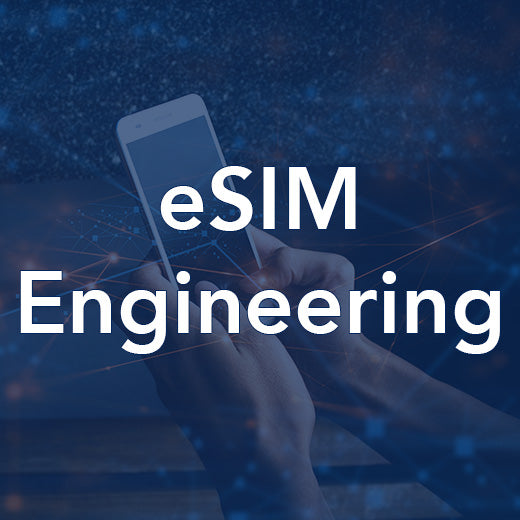
eSIM Engineering
The eSIM Engineering Training Course offered by Wray Castle provides a comprehensive technical overview of eSIM technology and the latest remote SIM provisioning specifications from GSMA. This course delves into the transition of the SIM from physical to digital realms, exploring unique system architectures for both M2M and Consumer applications. Participants will gain insights into the evolution of eSIM technology and a glimpse into the future developments in this field. Engineers, product managers, and other professionals seeking to implement eSIM-based products and services within their organizations will greatly benefit from this course. A general engineering background with some knowledge of GSM SIM technology is assumed, and a basic understanding of mobile networks would be advantageous. The course covers essential topics such as the introduction to eSIM, GSMA Consumer eSIM Specification, GSMA M2M eSIM Specification, enhancements in the Consumer eSIM Specification, and the future prospects of eSIM technology. Who would benefit The course is intended for engineers, product managers and other staff who are looking to prepare for or actively roll out eSIM-based products and services within their organisations. Prerequisites A general engineering background with some knowledge of GSM SIM technology is assumed. A basic understanding of mobile networks would be desirable. Topic areas include Introduction to eSIM GSMA Consumer eSIM Specification GSMA M2M eSIM Specification GSMA Consumer eSIM Specification Enhancements The Future of eSIM
POA: Private Course
-
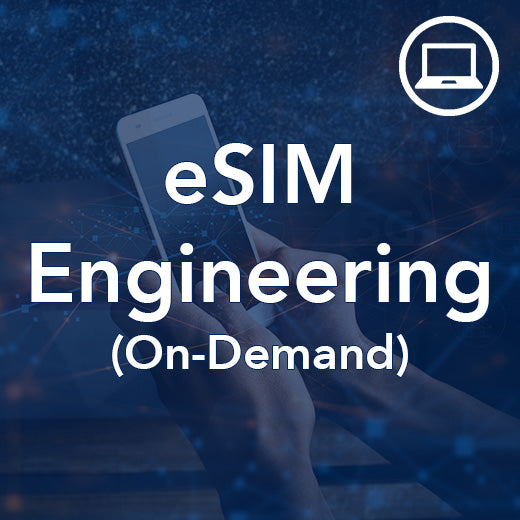
eSIM Engineering (On-Demand)
The eSIM Engineering Training Course offered by Wray Castle provides a comprehensive technical overview of eSIM technology and the latest remote SIM provisioning specifications from GSMA. This course delves into the transition of the SIM from physical to digital realms, exploring unique system architectures for both M2M and Consumer applications. Participants will gain insights into the evolution of eSIM technology and a glimpse into the future developments in this field. Engineers, product managers, and other professionals seeking to implement eSIM-based products and services within their organizations will greatly benefit from this course. A general engineering background with some knowledge of GSM SIM technology is assumed, and a basic understanding of mobile networks would be advantageous. The course covers essential topics such as the introduction to eSIM, GSMA Consumer eSIM Specification, GSMA M2M eSIM Specification, enhancements in the Consumer eSIM Specification, and the future prospects of eSIM technology. This self-paced on-demand distance learning course features illustrated course books, videos, tests and full tutor support. Who would benefit The course is intended for engineers, product managers and other staff who are looking to prepare for or actively roll out eSIM-based products and services within their organisations. Prerequisites A general engineering background with some knowledge of GSM SIM technology is assumed. A basic understanding of mobile networks would be desirable. Topic Areas Include Introduction to eSIM GSMA Consumer eSIM Specification GSMA M2M eSIM Specification GSMA Consumer eSIM Specification Enhancements The Future of eSIM
£1,815.00
-

Fibre Optic Introduction
Our Fibre Optic Introduction course is designed to provide participants with a solid foundation in fibre optics, covering both the advantages and challenges associated with this technology. Throughout the course, attendees will gain an understanding of the fundamentals of light, fibre optic basics, key building blocks and equipment, as well as the deployment process. From the nature of light and light propagation to optical cables and splice closures, this course offers a comprehensive overview of fibre optics. With a focus on practical applications and real-world scenarios, this course equips participants with the knowledge and skills needed to successfully deploy fibre optic networks. Whether you are new to the field of telecommunications or looking to enhance your understanding of fibre optics, this course is suitable for individuals at all levels of experience. Course Contents Fibre Optic Networks: Building Blocks Fundamentals of Light Propagation Fibre Optic Basics Optical Cable Types and Applications Fusion and Mechanical Splicing Optical Connectors and Fibre Termination Passive Optical Components Active Optical Components Fibre Optic Networks Fibre Optic Networks: Testing and Troubleshooting Connector Inspection and Cleaning Optical Power Meter and Light Source Optical Time Domain Reflectometer Optical Network Troubleshooting Safety Best Practices
£980.00
-
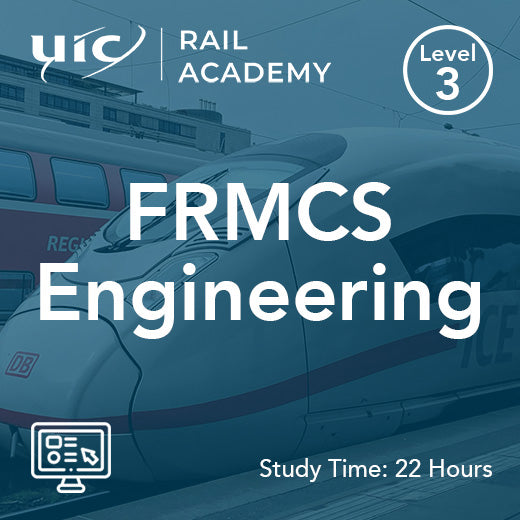
FRMCS Engineering V2 (On-Demand)
GSM-R end of life is anticipated to be around 2030 which only leaves a few years to find a replacement system. The International Union of Railways (UIC) have published a document called FRMCS- Future Railway Mobile Communications System which outlines what will be required of a future system. The railway community have detailed the communications requirements of the future railway networks and are looking for telecommunications manufacturers and standards bodies to provide a suitable solution. This technical course is aimed at engineers planning to deploy FRMCS as a successor to GSM-R. It identifies the specifications for FRMCS, the design aims, architecture of the On-Board systems, trackside systems and the transport network. Additionally, the course details the capabilities of FRMCS, operational procedures and looks at possible migration scenarios with GSM-R. Now fully updated to include FRMCS V2 specifications. Prerequisites Attendees ideally will have a background in telecommunications gained from working in the railway industry and have technical knowledge of GSM-R. Who would benefit? The course is open to anyone that would like to gain an insight into how mobile telecommunications for railways may migrate from GSM-R to the system known as FRMCS. This self-paced on-demand distance learning course features illustrated course books, videos, tests and full tutor support. Topic Areas Include FRMCS – An Introduction FRMCS Reference Architecture FRMCS On-Board Architecture FRMCS Trackside Components Voice Application Subsystem FRMCS Location and Positioning System 5G FRMCS Addressing The SIP Core Mission Critical Architecture and Procedures FRMCS Operation Radio Planning and Migration MCVideo Certified by Institution of Railway Signal Engineers (IRSE) The Institution of Railway Signal Engineers (IRSE) certifies that the syllabus for the FRMCS Engineering course is appropriate for meeting the stated objectives of that course. For more information about the scope of the certification process provided by the IRSE please see the IRSE website www.irse.org.
£2,275.00
-
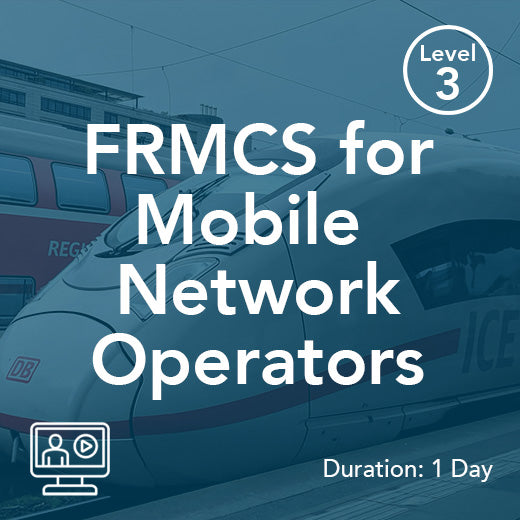
FRMCS For Mobile Network Operators
Railways worldwide have relied on GSM-R, a specialised adaptation of commercial GSM technology, for critical train-to-controller voice communications and digital signalling for over 15 years. However, GSM-R is reaching the end of its lifecycle and will become obsolete by 2035. The International Union of Railways (UIC) has launched the Future Railway Mobile Communications System (FRMCS) project to design and implement the next-generation communication system. Unlike its predecessor, FRMCS leverages cutting-edge 5G technology and offers mobile network operators (MNOs) a unique opportunity to contribute to this transformative shift in railway communications. This course provides an in-depth overview of FRMCS, highlighting: The transition from GSM-R to FRMCS, including timelines and standards. Planned 5G-based network architecture. Key challenges, such as spectrum allocation, coverage, and capacity. The critical role of MNOs, from infrastructure sharing to delivering broadband services. Tailored for mobile network operators, this course equips participants with the insights needed to engage with the FRMCS initiative, seize new opportunities, and contribute to the success of the next-generation railway communication system.
POA: Private Course
-
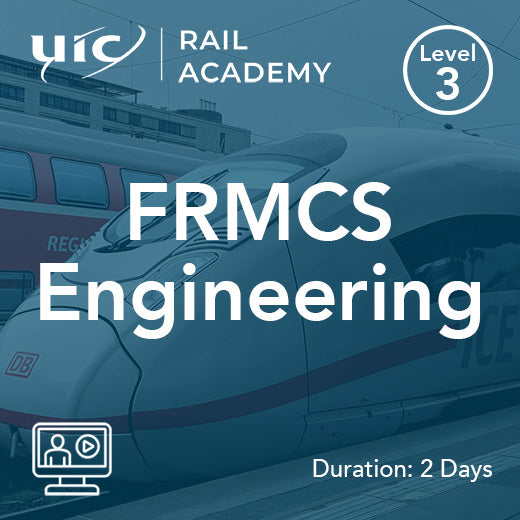
FRMCS V2 Engineering (Live)
GSM-R end of life is anticipated to be around 2030 which only leaves a few years to find a replacement system. The International Union of Railways (UIC) have published a document called FRMCS- Future Railway Mobile Communications System which outlines what will be required of a future system. The railway community have detailed the communications requirements of the future railway networks and are looking for telecommunications manufacturers and standards bodies to provide a suitable solution. This technical course is aimed at engineers planning to deploy FRMCS as a successor to GSM-R. It identifies the specifications for FRMCS, the design aims, architecture of the On-Board systems, trackside systems and the transport network. Additionally, the course details the capabilities of FRMCS, operational procedures and looks at possible migration scenarios with GSM-R. Now fully updated to include FRMCS V2 specifications. Prerequisites Attendees will ideally have worked in the rail industry with GSM-R or have a telecommunications background gained from working in the commercial cellular industry. Topic Areas Include FRMCS – An Introduction FRMCS Reference Architecture FRMCS On-Board Architecture FRMCS Trackside Components Voice Application Subsystem FRMCS Location and Positioning System 5G FRMCS Addressing The SIP Core Mission Critical Architecture and Procedures FRMCS Operation Radio Planning and Migration MCVideo Benefits and Learning Objectives Learn about the standards-based approach to developing FRMCS Be aware of the key features and services FRMCS will bring to the railways Discover how 3GPP 5G technology can be used to support FRMCS Describe the potential migration paths from GSM-R to FRMCS Understand the radio spectrum issues associate with migration Understand how 3GPP Mission Critical applications can be adopted by FRMCS Certified by Institution of Railway Signal Engineers (IRSE) The Institution of Railway Signal Engineers (IRSE) certifies that the syllabus for the FRMCS Engineering course is appropriate for meeting the stated objectives of that course. For more information about the scope of the certification process provided by the IRSE please see the IRSE website www.irse.org. Trainer: Les Granfield Les is a technical trainer with 35 years of experience. His expertise extends across a wide range of telecommunications technologies. He specializes in 5G, GSM-R, ERTMS/ETCS, FRMCS, radio access networks, radio planning, radio access network optimization and Push to Talk over Cellular (PoC). Courses run 9am-12.30pm CET each day.
£2,516.00
-
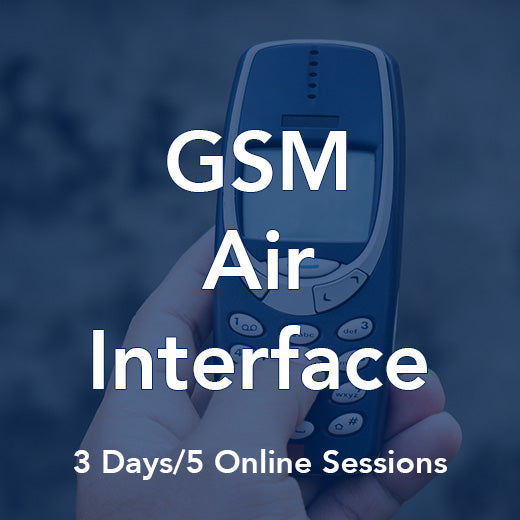
GSM Air Interface
Our GSM Air Interface Training Course is designed to provide a technical introduction to the world of GSM. This course covers the services, structure, and operation of a GSM mobile network, making it ideal for individuals new to or entering the GSM industry who require a technical overview of GSM network operation and its associated technologies. During this course participants will delve into various topic areas including GSM organizations and standards bodies, GSM services and service enablers, network architecture, GSM/GPRS identities, GSM EDGE radio access network, GSM channels, cell coverage and capacity, propagation issues, core network architecture, GPRS network architecture, idle mode procedures, dedicated mode procedures, GPRS procedures, GSM family evolution, real-world network configuration, and network sharing. By the end of the course, attendees will have a solid understanding of GSM technology and its operation, equipping them with the knowledge needed to excel in the GSM industry. Join us for our GSM Air Interface Training Course to enhance your skills and expertise in this field. Who would benefit Those new to or entering the GSM industry who require a technical overview of GSM network operation and its associated technologies. Prerequisites A basic understanding of cellular radio networks and associated technologies, as well as an ability to comprehend technical subjects, is an advantage. Topic Areas Include GSM organizations and standards bodies GSM services and service enablers Network architecture GSM/GPRS identities GSM EDGE radio access network GSM channels Cell coverage and capacity Propagation issues Core network architecture GPRS network architecture Idle mode procedures Dedicated mode procedures GPRS procedures GSM family evolution Real-world network configuration Network sharing
POA: Private Course
-
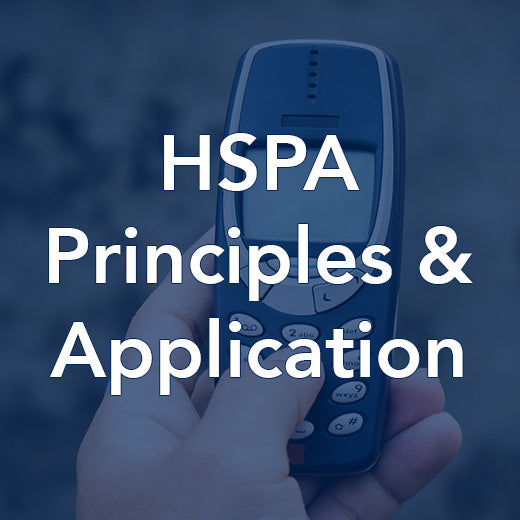
HSPA Principles and Application
This one-day course provides a clear and logically organized explanation of both HSDPA and the E-DCH for both HSPA and the introduction to HSPA+ capabilities. In addition to the comprehensive training course on HSPA principles and applications, participants can expect to gain a deeper understanding of key topic areas such as HSDPA protocol structure, MAC architecture, HSDPA physical layer functions, device categories, and implementation. The course also covers HSUPA protocol structure, channels, physical layer functions, device categories, and the establishment of a HSUPA connection. Participants will also learn about cell change procedures, enhanced uplink protocols, soft handover, and the implications for network design and operation. This one-day course is designed for individuals who require a technical overview of HSDPA and HSUPA, and how these technologies impact network design and operation. Participants should have familiarity with the structure and operation of the UMTS air interface at Release 99 and Release 4, or have previously attended the UMTS Air Interface course (MB2002). By the end of the course, participants will have a clear and logically organized explanation of HSDPA, E-DCH, and an introduction to HSPA+ capabilities, equipping them with the knowledge and skills needed to excel in the field of wireless communication technologies. Who would benefit Those who require a technical overview of HSDPA and HSUPA and the implications for network design and operation. Prerequisites Familiarity with the structure and operation of the UMTS air interface at Release 99 and Release 4, or previous attendance on the UMTS Air Interface course (MB2002). Topic Areas Include Introduction to HSPA HSDPA protocol structure MAC architecture HSDPA channels HSDPA physical layer functions HSDPA device categories HSDPA implementation Cell change procedures Enhanced uplink protocols HSUPA protocol structure MAC architecture HSUPA channels HSUPA physical layer functions HSUPA device categories Establishment of a HSUPA connection Soft handover
POA: Private Course
-
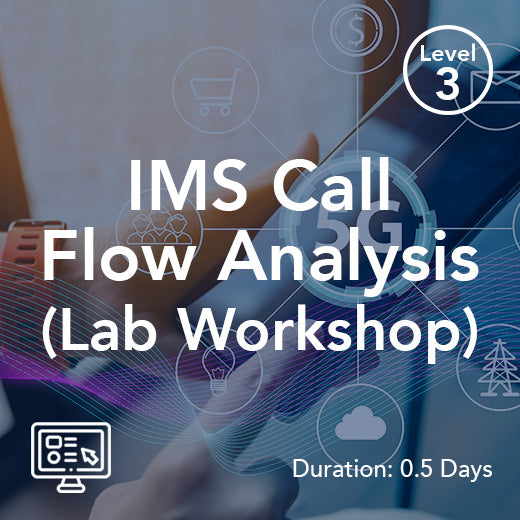
IMS Call Flow Analysis (Lab Workshop)
Examine details of IMS Call Flow Analysis with focuses on IMS Registration and Invitation procedures with our 1/2-Day Virtual Lab. The cloud-based lab provides participants with access to a fully emulated 5G System environment. Experiment with the configurations for various Network Functions within the 5G Core Network and build customized settings for signalling scenarios that will enable users to develop greater insight in to the operation of the 5G System. IMS Call Flow Analysis Focuses on IMS Registration and Invitation procedures includes: SIP routing within the IMS domain Detailed information about SDP for IMS Session setup Lab Features & Benefits Through a combination of hands-on experience and guided instruction our virtual labs allow users to explore signalling procedures in the 5G system. Our labs feature: A simulated 5G network - Provides hands-on experience and reinforces theoretical knowledge. Guided exercises for signalling scenarios - makes learning and applying new concepts straightforward. Wireshark (pcap) output files – detailed output files provide deep system insight. Cloud-based lab - available 24/7 on any connected device. Individual dedicate server - Ensures that your work is kept private and secure. Ongoing trainer support - ensures you get expert advice when needed. Full integration with Wray Castles training programmes - allows you to build bespoke learning pathways for specialist teams across your organisation. You can find more information on our labs and arranges a demo here.
POA: Private Course
-
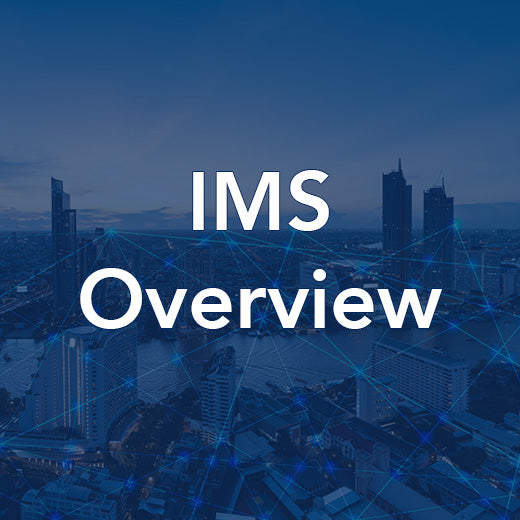
IMS Overview
Our IMS Overview Training Course is designed to provide participants with a solid foundational understanding of the IP Multimedia Subsystem (IMS) and its role in Next Generation Networking. This course offers an overview of the IMS architecture, including security, charging, and Policy and Charging Control (PCC), as well as an analysis of the main protocols associated with the IMS. Participants will also gain insights into IMS registration and session control procedures, along with a brief overview of the applications enabled by the IMS. This course serves as an ideal introduction to the IMS for those who do not require the in-depth coverage provided in our 3-day IMS and SIP course. Ideal for individuals looking to enhance their understanding of the IMS architecture and operation, particularly in relation to VoLTE, as well as those seeking an introduction to SIP, this course covers a range of topic areas. Participants will explore concepts such as the IMS framework, protocols used by the IMS, CSCFs and HSS roles, SIP basics, IMS architecture, online and offline charging, policy control and charging, and more. By the end of this training, participants will have a comprehensive understanding of the IMS and its key components, making them well-equipped to navigate the evolving landscape of Next Generation Networking. Who would benefit This session is for those aiming to better understand the architecture and operation of the IMS, potentially in relation to VoLTE, as well as those looking for an introduction to SIP. Prerequisites An understanding of packet switched domains in LTE, GPRS and UMTS networks and their functionality is an advantage. Topic Areas Include What is the IMS and why do we need it? The IMS Framework simplified Protocols used by the IMS IMS architecture, interfaces, operation and procedures Roles of the CSCFs and HSS What is the Session initiation Protocol (SIP)? SIP User location and Session Control Basic Concepts Session Establishment using a SIP Architecture SIP Routing Introduction to the IMS Architecture The CSCFs’ Roaming and Non-Roaming Architecture Call Session Control Functions (CSCFs) Circuit Switched interworking The Media Resource Function (MRF) Introduction to Border Control IMS Security aspects Online and Offline Charging Policy Control and Charging (PCC) The role of SIP, SDP and RTP in the IMS IMS Registration Principles and Authentication Voice over LTE (VoLTE) Emergency Call Architecture and Procedure Rich Communication Suite (RCS)
POA: Private Course
-
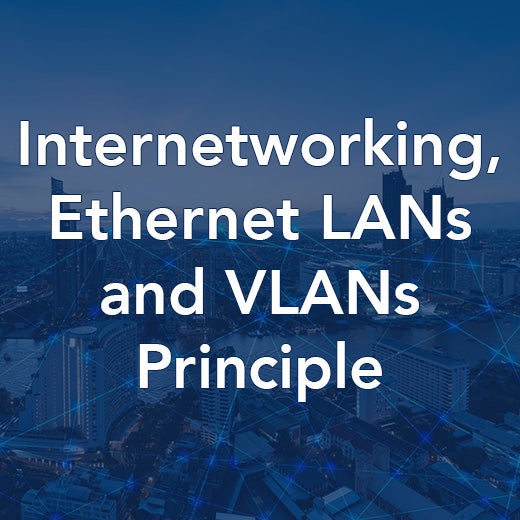
Internetworking, Ethernet LANs and VLANs Principles
In this comprehensive Internetworking Ethernet LANs and VLANs Principles training course, participants will gain a solid understanding of IP networking, with a specific focus on local LAN connections. The course delves into the intricacies of Ethernet technology, Switching, and Virtual LANs (VLANs), providing a well-rounded education on these fundamental networking concepts. Ideal for network engineers involved in planning, design, implementation, or support, as well as those in management roles, this course serves as a valuable introduction to LANs. It also serves as a stepping stone for those looking to expand their knowledge to include broader implementations of Ethernet in Metro Ethernet or Carrier Ethernet environments. Participants with an interest in IP networks and a basic understanding of IP networking terminology are well-suited for this course. Through a series of topic areas, including LANs, Layer 2 Switching, Ethernet Standards, MAC Addresses, and Virtual LANs (VLANs), attendees will leave with a comprehensive understanding of Ethernet LANs and VLANs principles. Who would benefit This course is aimed at any network engineers in planning, design, implementation or support as well as management roles. It provides the right level of introduction to the world of LANs which can also be a stepping stone to the broader implementations of Ethernet in the Metro Ethernet or Carrier Ethernet worlds. Prerequisites The only prerequisite would be an interest in IP networks and a basic understanding of some of the IP networking terminology. Topic Areas Include LANs, MANs and WANs The Link Layer Protocols Layer 2 Switching Ethernet Network Elements Ethernet Standards MAC Addresses LAN Cabling Combining Layer 2 and Layer 3 Systems STP Topology Spanning Tree Operation Virtual LANs (VLANs)
POA: Private Course
-
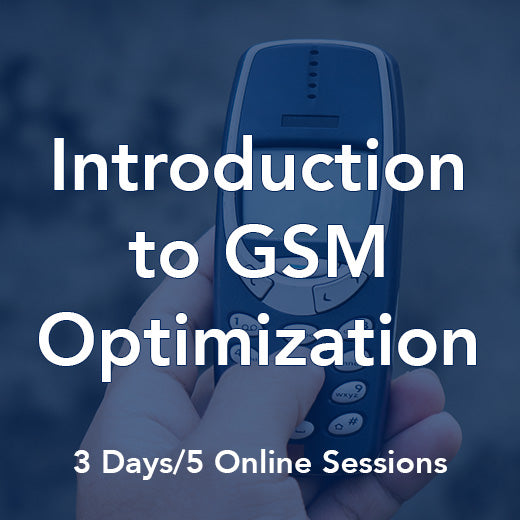
Introduction to GSM Optimization
Course Code: MB80 Who Would Benefit Those requiring an introduction to the principles and techniques related to optimization of the GSM air interface. Prerequisites A good understanding of the GSM Air Interface (Wray Castle course – MB50) and GSM cell planning principles. Course Contents Introduction and Overview Factors Affecting Network Access Dedicated Mode Considerations GSM Features and Techniques Cell Configurations Software Tools Practical Exercises
POA: Private Course
-
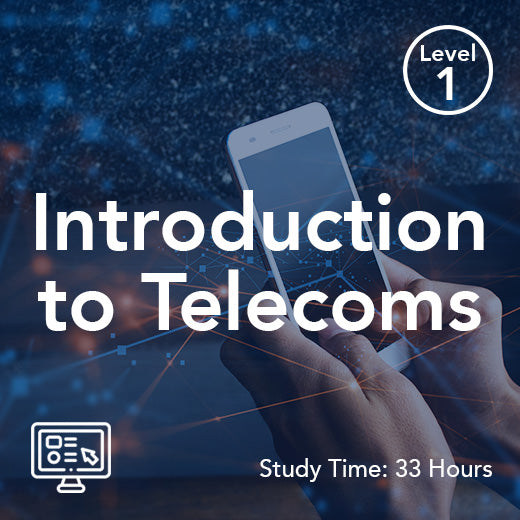
Introduction to Telecoms (On-Demand)
The Introduction to Telecoms Training Course is designed to provide participants with a comprehensive understanding of the core technologies used in fixed, mobile, and IP-based telecoms networks. Learners will delve into the fundamentals of networking technologies, including switching, transmission, and signalling, as well as the services that they support. The training also covers next-generation networking in an all-IP environment, ensuring that participants are equipped with the knowledge needed to excel in the telecommunications industry. Ideal for those currently working in or looking to enter the telecommunications field, this course is perfect for individuals who need a solid grasp of the functions and services offered by modern networks. Participants should have a basic mathematical ability and a technical aptitude, with the intention to pursue a technical role in the industry. By exploring topics such as telecoms evolution, network components and services, and mobile cellular systems, attendees will gain valuable insights into the ever-evolving world of telecommunications. This self-paced on-demand distance learning course features illustrated course books, videos, tests and full tutor support. Who would benefit Those working in or entering the telecommunications industry who need to understand the functions and services provided by modern networks. Prerequisites Mathematical ability and aptitude for technical subjects, with the intention to progress in a technical role. Topic Areas Include Telecoms evolution Network components and services The PSTN and ISDN: access and core networks Basic analogue and digital information concepts Time division multiplexing and switching techniques Transmission systems: PDH, SDH, WDM and OTN Mobile cellular systems: 2G, 2.5G, 3G and 3.5G Packet-switched techniques IP, Ethernet, the Internet, ISPs and Internet Services Fixed and Mobile Broadband access technologies Next Generation fixed and mobile networks IP Multimedia Subsystem Also available as a Live Online Training Programme, learn more.
£2,660.00
-

Introduction to Telecoms Regulation
This 1-day course on Introduction to Telecoms Regulation covers all aspects of regulation in the telecommunications industry. Participants will gain an understanding of the three different types of regulation and how they impact the industry's structure, services offered, competitive environment, prices, and consumer choice and protection. By attending this course, participants will gain insights into the key regulatory frameworks governing the telecommunications sector and how to navigate them effectively. Course contents include an introduction to regulation, regulation for competition, licensing and authorization, spectrum regulation, and consumer protection. By the end of the course, participants will have a comprehensive understanding of the regulatory landscape in the telecommunications industry and how to ensure compliance while maximizing business opportunities. Who Would Benefit Anyone involved in business decisions working in a firm which is subject to regulation or competition law constraints including finance, pricing, and sales & marketing teams. Course Contents Introduction Regulation for Competition Licensing and Authorisation Spectrum Regulation Consumer Protection
POA: Private Course
-
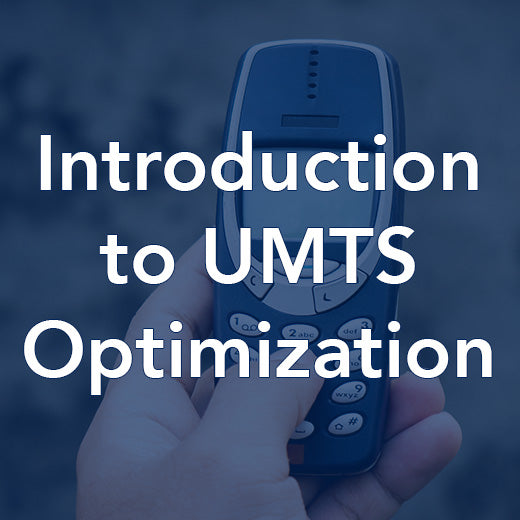
Introduction to UMTS Optimization
Course Code: RP2400 Course Summary This course highlights the differences between optimizing a GSM network and a WCDMA network. The course focuses on the parameters and features which can be used to fine-tune a WCDMA air interface. Who would benefit Those who require an introduction to the principles and techniques that relate to optimizing the UMTS FDD mode Radio Access Network (RAN). Prerequisites An understanding of UMTS air interface operation and an appreciation or experience of UMTS cell planning, or previous attendance on the UMTS Air Interface course (MB2002) and the Cell Planning for UMTS Networks course (MB2005). Topic Areas Include The WCDMA optimization process Identification of optimization opportunities Tools for optimization The coverage-capacity-quality relationship Drive test tools, performance data and statistics management Link budgets Coverage and capacity optimization issues and solutions Repeater solutions Antenna solutions LNA solutions Soft handover solutions RAN configurations and dimensioning Idle mode and system access parameters Connected mode parameters Radio link control parameters UMTS features – HSDPA, MIMO Includes optimization exercises.
POA: Private Course
-
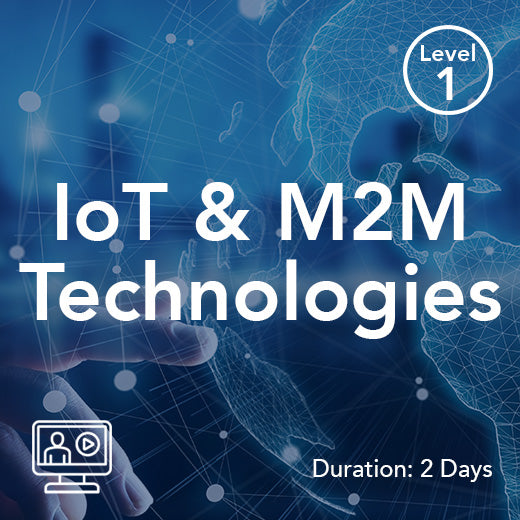
IoT and M2M Technologies
Our IoT and M2M Technologies course is designed to provide a comprehensive overview of both existing and emerging technologies in the field. Ideal for those involved in IoT and M2M projects or looking to explore related opportunities, this course covers the scope, potential applications, use cases, and deployment options available. Participants will gain insight into the technologies and techniques necessary to efficiently deploy and operate supporting infrastructure such as devices, SIM cards, networks, platforms, and the wider ecosystem. This course delves into industry and global models, identifying the major requirements of modern M2M systems and exploring how these requirements can be met using existing and emerging technologies. Participants will gain a thorough understanding of Cellular M2M, including the latest 5G techniques like NB-IoT and CIoT, MTC for LTE, and legacy GPRS deployments. Additionally, the course covers M2M eSIM remote profile provisioning, a crucial aspect of managing device connectivity in IoT and M2M applications. Ideal for industry professionals seeking to upskill in IoT technologies or those focusing on specific aspects of IoT and M2M solutions, this course provides a solid foundation for assessing, driving, or developing IoT opportunities within their organizations. Join us for 2 days and 4 live online sessions with our experienced trainer, Tony Wakefield, to gain valuable insights into the world of IoT and M2M technologies. Who would benefit The course is an ideal foundation for … those working in the industry who need to rapidly upskill to help assess, driveor develop IoT opportunities within their own organisation further study for those focusing on particular IoT / M2M technologies, or specific aspects of IoT / M2M solutions Topic Areas Include Introduction to IoT/M2M Principles of Mobile Cellular Networks Cellular M2M Systems eSIM for M2M MTC – including LTE-M, NB-IoT and CIoT 5G - Enabling IoT and M2M M2M Security Trainer: Tony Wakefield Tony is an experienced technical trainer and competency development specialist having worked with a diverse and extensive base of companies. He has spoken at global conferences and has extensive experience in facilitating programmes, specialising in 5G and the wider aspects of telecoms and connected innovation.
POA: Private Course
-
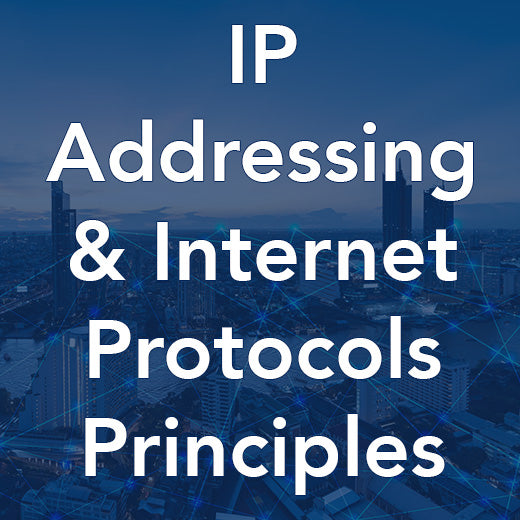
IP Addressing and Internet Protocols Principles
A course designed to give the new IP engineer a grounding in IPv4 Addressing whilst also exploring the typical routing protocols and essential components that will be encountered. The course also looks inside a typical router and explains the workings of the routing or forwarding table. In today's digital age, understanding IP addressing and internet protocols is essential for any engineer entering the world of networking. Wray Castle's IP Addressing and Internet Protocols Principles Training Course, with the course code IP1305, is designed to provide a comprehensive introduction to IPv4 addressing and routing protocols. This course delves into the inner workings of routers, explaining routing tables and essential components that engineers will encounter in their IP-centric roles. Ideal for engineers transitioning into an IP-centric environment, this course covers topics such as subnet masks, TCP/IP suite, IPv6, DHCP, DNS, and routing principles. Whether you need to interpret router outputs or understand the fundamentals of IPv4 addressing, this training course will equip you with the knowledge and skills necessary to navigate the complexities of internet protocols. Prior knowledge of internetworking, Ethernet LANs, and VLANs principles is recommended as a prerequisite for this course. Enhance your understanding of internet protocols and boost your engineering capabilities with Wray Castle's IP Addressing and Internet Protocols Principles Training Course. Who would benefit All engineers who are moving into an IP centric world and need a grounding in the workings of IPv4; especially those that need a grounding in IPv4 addressing and subnet masks as well as needing to interpret output from a typical router. Prerequisites Internetworking, Ethernet LANs and VLANs Principles or equivalent prior knowledge of LANs and Ethernet switching. Topic Areas Include The purpose of routing Building a route table The TCP/IP suite The IP addressing scheme Subnet mask and determination of a packet’s destination IPv6 Dynamic Host Configuration Protocol (DHCP) Domain Name System (DNS) Routing principles Interior and exterior routing
POA: Private Course
-
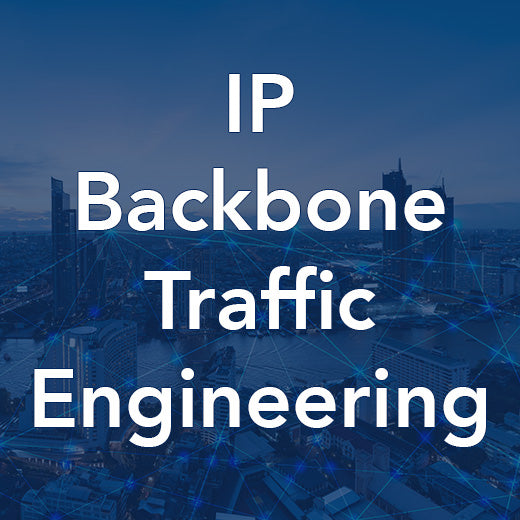
IP Backbone Traffic Engineering
This is a detailed course examining the complexities of IP Backbone traffic engineering techniques. ATM and MPLS are explored as well as looking to the future of traffic engineering. This 2-day IP Backbone Traffic Engineering training course delves into the intricacies of IP backbone traffic engineering techniques, exploring ATM and MPLS while also looking towards the future of traffic engineering. Designed for those looking to gain a comprehensive understanding of backbone traffic engineering for IP networks, this course covers a range of topic areas including traffic engineering overview, techniques, Layer 3 traffic engineering, OSPF and BGP architecture and operation, as well as traffic engineering using OSPF and BGP4. Ideal for individuals with experience in IP engineering and a solid grasp of packet-switched data networks, TCP/IP principles, and ATM, this course offers valuable insights into ATM traffic engineering, IP-over-ATM traffic engineering, MPLS traffic engineering, integrated MPLS-TE approach, the evolution of ATM to MPLS core networks, and Generalized MPLS. Who would benefit Those needing to understand the principles of backbone traffic engineering for IP networks. Prerequisites Experience of IP engineering and an understanding of packet-switched data networks, TCP/IP principles and ATM are beneficial. Topic Areas Include Traffic engineering overview Traffic engineering techniques Layer 3 traffic engineering OSPF architecture and operation BGP and BGP4 architecture and operation Traffic engineering using OSPF and BGP4 ATM traffic engineering IP-over-ATM traffic engineering MPLS traffic engineering Integrated MPLS-TE approach The evolution of ATM to MPLS core networks Generalized MPLS
POA: Private Course
-
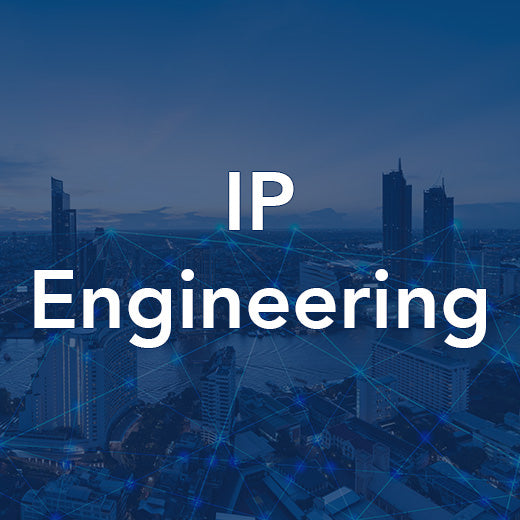
IP Engineering
This course delivers a detailed overview of Internet Protocol networks. Delivering an understanding of Engineering techniques, as well as applications, protocols and switching methods, it enables delegates to work confidently in the IP environment. Other topics explored include QoS, security, VPNS and Multimedia over IP. This IP Engineering training course is designed to provide a comprehensive understanding of Internet Protocol networks, covering engineering techniques, applications, protocols, and switching methods. Participants will gain the knowledge and skills needed to confidently work in the IP environment, with topics including QoS, security, VPNS, and Multimedia over IP. Ideal for those looking to understand how IP networks are designed and implemented, this course is suitable for individuals with some knowledge or experience of packet-switched data network operation and Internet technology. By enrolling in this course, participants will explore a range of topic areas including the background to the Internet and ISPs, IPv6, DNS, MPLS, access services, routing in IP networks, IP QoS technologies, security engineering, IP VPNs, and IP multimedia services. Gain the skills and expertise needed to succeed in the dynamic field of IP engineering with this comprehensive training program. Who would benefit Those needing to understand how IP networks are designed and implemented. Prerequisites Some knowledge or experience of packet-switched data network operation and Internet technology is beneficial. Topic Areas Include Background to the Internet and ISPs The Data Link, IP, Transport and Application layers IPv6 The Domain Name System (DNS) Introduction to MPLS Access services E-mail services and web hosting Name servers Service Provider Network architectures Peering Routing in IP networks Overview of OSPF and BGP4 IP QoS technologies Security engineering IP VPNs IP multimedia services
£0.00 - £1,815.00
-
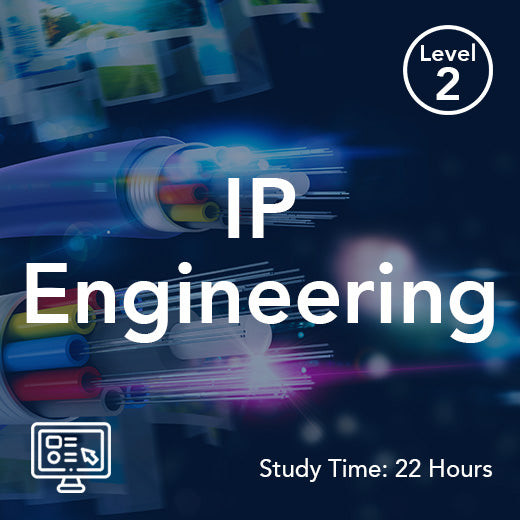
IP Engineering (On-Demand)
This comprehensive IP Engineering on Demand course provides a deep dive into Internet Protocol networks, covering engineering techniques, applications, protocols, and switching methods. Participants will gain the knowledge and skills needed to confidently navigate the IP environment, with topics including QoS, security, VPNs, and Multimedia over IP. Ideal for those looking to understand how IP networks are designed and implemented, this course is perfect for individuals seeking to enhance their expertise in this critical area. Participants in this course should have some prior knowledge or experience with packet-switched data network operation and Internet technology. The course covers a range of topic areas, including the background of the Internet and ISPs, the Data Link, IP, Transport, and Application layers, IPv6, DNS, MPLS, access services, routing in IP networks, OSPF, BGP4, IP QoS technologies, security engineering, IP VPNs, and IP multimedia services. By the end of the 22-hour course, participants will have a solid understanding of IP networks and the skills to work effectively in this dynamic environment. Who would benefit Those needing to understand how IP networks are designed and implemented. Prerequisites Some knowledge or experience of packet-switched data network operation and Internet technology is beneficial. Topic Areas Include: Background to the Internet and ISPs The Data Link, IP, Transport and Application layers IPv6 The Domain Name System (DNS) Introduction to MPLS Access services E-mail services and web hosting Name servers and heterogeneous networks Peering Routing in IP networks Overview of OSPF and BGP4 IP QoS technologies Security engineering IP VPNs IP multimedia services
£750.00
-
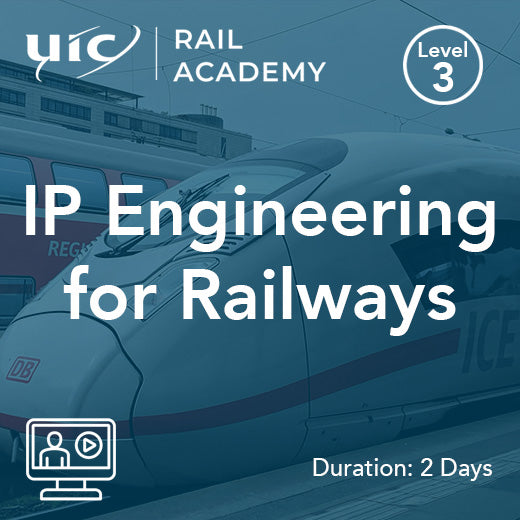
IP Engineering for Railways
IP Engineering for Railways delivers a detailed overview of Internet Protocol networks. Delivering an understanding of Engineering techniques, as well as applications, protocols and switching methods, it enables delegates to work confidently in the IP environment. Other topics explored include QoS, security, VPNS and Multimedia over IP. With the emergence of FRMCS our 5G Rail portfolio addresses the technical requirements of FRMCS. Who would benefit Those needing to understand how IP networks are designed and implemented. Prerequisites Some knowledge or experience of packet-switched data network operation and Internet technology is beneficial. Topic Areas Include Background to the Internet and ISPs The Data Link, IP, Transport and Application layers IPv6 The Domain Name System (DNS) Introduction to MPLS Access services E-mail services and web hosting Name servers Service Provider Network architectures Peering Routing in IP networks Overview of OSPF and BGP4 IP QoS technologies Security engineering IP VPNs IP multimedia services
POA: Private Course
-
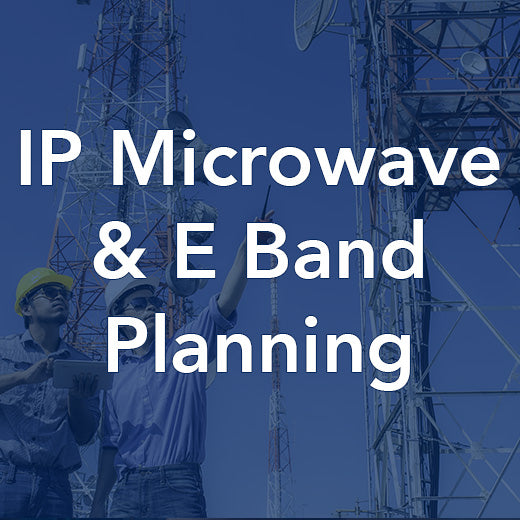
IP Microwave and E Band Planning
This course introduces some of the key techniques used in the latest products related to microwave radio. Topics covered include adaptive modulation; radio link protection and bonding; fixed link MIMO; Internet Protocol (IP) radio; Ethernet QoS management; header compression and split mount; and full outdoor configuration. The course looks at how vendors and network planners are addressing the issues associated with upgrading from legacy microwave technologies (PDH/SDH) to full IP. The emerging E-band technology is discussed in detail, with a particular emphasis on planning E-band links and the technical specifications of a range of equipment from the main vendors. In this comprehensive IP Microwave and E-Band Planning Training Course, participants will delve into the latest techniques and technologies in the field of microwave radio. The course covers a wide range of topics including adaptive modulation, radio link protection, Ethernet QoS management, and the transition from legacy microwave technologies to full IP. Participants will also gain valuable insights into E-band technology, with a focus on planning E-band links and understanding the technical specifications of equipment from leading vendors. This course is ideal for experienced transmission and backhaul engineers, as well as system architects looking to deepen their understanding of fixed broadband radio. A good knowledge of radio principles and familiarity with IP technologies are recommended prerequisites for this training. By the end of the course, participants will have a solid grasp of Ethernet radio, spectrum and regulation, technological developments in fixed link radio, planning IP and E-Band radio links, and timing and synchronization. Who would benefit This course is intended for experienced transmission and backhaul engineers and system architects requiring an in-depth understanding of the evolution of fixed broadband radio. Prerequisites A good knowledge of radio principles would be desirable, as well as an appreciation of IP technologies. Topic Areas Include Ethernet Radio Spectrum and Regulation Technological Developments in Fixed Link radio Planning IP and E-Band Radio Links Timing and Synchronization
POA: Private Course
-
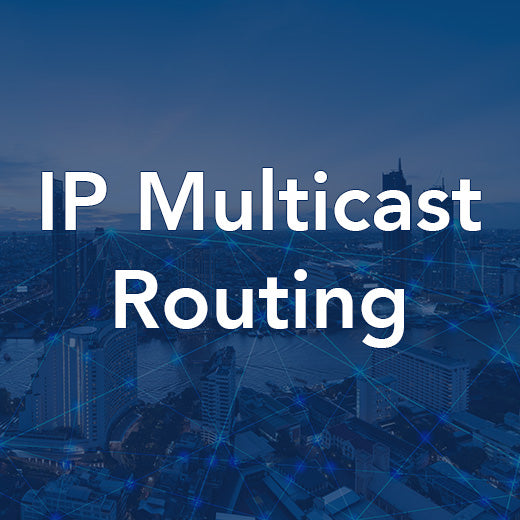
IP Multicast Routing
This is IP multicasting practically carrying an IPTV service using the Protocol Independent Multicast (PIM) and Internet Group Management Protocol (IGMP) protocols. IGMP and PIM are introduced and then PIM Sparse Mode and Source Specific Mode is tested practically using labs. Join our 2-day IP Multicast Routing training course to gain a comprehensive understanding of Protocol Independent Multicast (PIM) and Internet Group Management Protocol (IGMP) protocols. Through practical labs, you will learn how to implement PIM Sparse Mode and Source Specific Mode to deliver IPTV services effectively. This course is ideal for engineers venturing into the realm of IPTV and converged services, providing you with the necessary skills to navigate the complexities of IP multicasting. Prior knowledge of IP protocols, particularly link state protocols like OSPF, is recommended for this course. If you need to brush up on your understanding of these protocols, consider attending our 'OSPF and BGP Routing Protocols' course before diving into IP multicasting. With a focus on hands-on learning, our training sessions will equip you with the expertise needed to configure multicast routing tables, understand IPv4 and IPv6 multicast addressing, and implement multicast services efficiently. Expand your knowledge of IP multicasting and enhance your skill set with our IP Multicast Routing training course. Who would benefit Engineers particularly those entering the world of IPTV and converged services generally would benefit from this Wray Castle course. Prerequisites A good understanding of IP protocols especially link state protocols such as OSPF which can be gained by attending our Wray Castle course ‘OSPF and BGP Routing Protocols – IP1310’ Topic Areas Include What is IP Multicast? IPv4 Multicast Addressing Multicast vs Unicast or Broadcast Routing Multicast Routing Tables Multicast in LANs Internet Group Management Protocol (IGMP) Protocol Independent Multicast (PIM) Multicast Services IPv6 Multicast ICMPv6
POA: Private Course
-
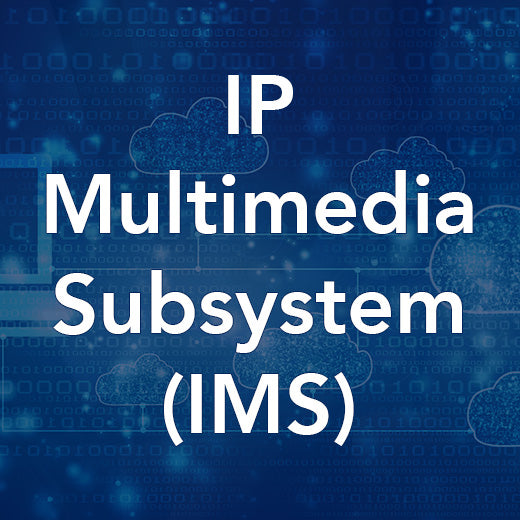
IP Multimedia Subsystem (IMS)
This course provides an understanding of the IP Multimedia Subsystem’s (IMS) role in Next Generation Networking. It provides a detailed description of the IMS architecture including security, charging and Policy and Charging Control (PCC). Additionally it identifies the main protocols associated with IMS including SIP, Diameter and SDP and analyzes their role in the IMS registration and session control procedures. It also provides a brief look at some of the applications enabled by the IMS. Our IP Multimedia Subsystem (IMS) training course is designed to provide a comprehensive understanding of the IMS architecture and its role in Next Generation Networking. Over the course of 2 days participants will delve into the intricacies of IMS, including security, charging, and Policy and Charging Control (PCC). This course also covers the main protocols associated with IMS, such as SIP, Diameter, and SDP, and analyzes their role in registration and session control procedures. Ideal for individuals seeking a thorough understanding of IMS architecture, interfaces, and procedures, this course is perfect for telecom professionals looking to enhance their knowledge and skills in this crucial area. Participants should have a basic understanding of SIP and packet-switched domains in LTE, GPRS, and UMTS networks to fully benefit from this training. Topics covered in this course include IMS framework, protocols for IMS, CSCFs and HSS roles, IMS access mechanisms, application service environment, security aspects, charging, and much more. By the end of the training, participants will have a solid grasp of IMS and its applications in the telecom industry. Who would benefit Those requiring a full understanding of the architecture, interfaces and procedures of the IMS. Prerequisites An understanding of SIP and the packet-switched domains in LTE, GPRS and UMTS networks and their functionality is an advantage. Topic Areas Include What is the IMS and why do we need it? Introduction to the IMS Framework Protocols for IMS IMS architecture, interfaces, operation and procedures Roles of the CSCFs and HSS including AAA procedures IMS access mechanisms and IP address allocation and P-CSCF discovery User subscription profiles, User Identities and Initial Filter Criteria Implicit Registration Sets Application Service (AS) environment Interaction between the CSCFs and the AS environment Circuit Switched interworking The Media Resource Function (MRF) Border Control Functions and gateways IMS Security aspects Online and Offline Charging Policy Control and Charging Analysis of SIP Registration, Originating and Terminating Session Control includes some example Wireshark analysis Emergency call handling IMS Applications
POA: Private Course
-

IP Workshop
The Internet Protocol (IP) is the key underpinning transmission and switching technology for almost all communication network types and a core skill for telecoms and IT engineers. Theoretical knowledge of how IP networks perform and hands-on experience of how to configure network devices and troubleshoot problems is offered through this intensive five-day course. Delegates work with a state-of-the-art equipment ‘pod’ whilst being led through the key theories. Our IP Workshop Training Course is a comprehensive five-day program designed to provide telecoms and IT engineers with the essential knowledge and hands-on experience needed to excel in the field of IP networking. Participants will work with state-of-the-art equipment pods and learn key theories behind IP networks, router configuration, testing, and troubleshooting. Engineers who want to deepen their understanding of IP protocols and network architecture will greatly benefit from this course. Prior knowledge of TCP/IP is required, which can be obtained by attending our TCP/IP course (QS2501). Throughout the program, participants will cover a range of topic areas including LAN technologies, Cisco equipment and IOS overview, routing protocols, IP access lists, WAN technologies, VLANs, and more. Hands-on practical exercises make up 60% of the course, ensuring that participants gain valuable experience in configuring network devices. Join us for our IP Workshop Training Course and enhance your skills in IP networking. With 10 live online sessions spread over 5 days, this intensive program will equip you with the knowledge and practical experience needed to succeed in the fast-paced world of telecoms and IT engineering. Who would benefit Engineers who require a thorough understanding of IP protocols and network architecture, together with hands-on experience of router configuration, testing and fault finding. Prerequisites A good knowledge of TCP/IP is required. This can be gained by attending Wray Castle’s TCP/IP course (QS2501). Topic Areas Include LAN technologies recap Introduction to Cisco equipment and an overview of Cisco IOS Basic router administrative functions Interface and configuration management Configuring IP addresses to interfaces Routing and routing protocols IP access lists NAT/PAT configuration WANs – Frame Relay, PPP and ISDN Layer 2 switching – VLANs and VLAN trunking Overview of Cisco examination process Includes hands-on practical exercises accounting for 60% of the course.
POA: Private Course
-
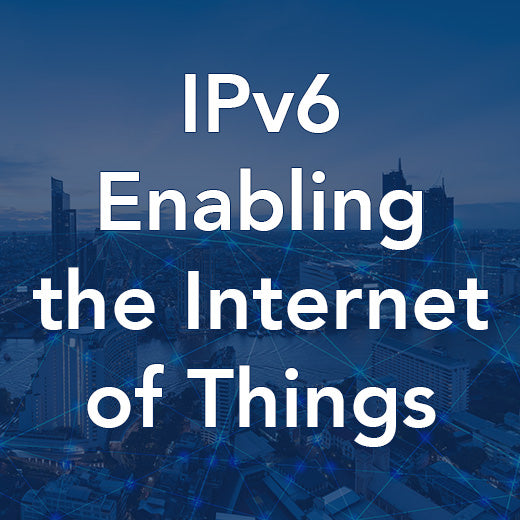
IPv6 Enabling the Internet of Things
This 3-day course provides a detailed look at IPv6 and in particular how this will apply to telecommunications markets from the User Equipment up through the Service Providers networks and out into the internet. All the essential topics, such as IPv6’s new addressing and packet formats; the variety of ways that IP addresses can be allocated to devices and the relevant standards bodies are covered, however, we also look at the new IPv6 messages and ICMPv6 in particular, as well as investigating the numerous deployment options from Dual Stacking through tunnelling techniques and address translation methods. The course ends with a review of the deployment and transition states that IPv4 and IPv6 networks are likely to evolve. In today's rapidly evolving telecommunications landscape, the transition to IPv6 is becoming increasingly crucial. Our 3-day IPv6 Enabling the Internet of Things training course delves deep into the world of IPv6, exploring its applications in telecommunications markets from end-user devices to service provider networks and beyond. Covering essential topics such as IPv6 addressing, packet formats, allocation methods, and relevant standards bodies, this course also delves into advanced concepts like IPv6 messages and ICMPv6, as well as deployment options including Dual Stacking, tunnelling techniques, and address translation methods. Through a series of real-world examples and hands-on labs, delegates will gain practical experience in key techniques such as address translation, IPv6 tunnelling, and NAT64. This course is ideal for IP design, planning, and support specialists in the fixed or mobile telecommunications sector, including design, planning, and operations staff. A basic understanding of IPv4 and related protocols (TCP, UDP, etc.) is recommended as a prerequisite for this course. Don't miss this opportunity to stay ahead of the curve and master the intricacies of IPv6 in today's interconnected world. Who would benefit Those people who specialise in IP design planning, implementation or support would benefit strongly from attending this course, including design, planning and operations staff. This course is aimed specifically at people working for fixed or mobile telecommunications. Prerequisites An understating of IPv4 and its related protocol ecosystem (TCP; UDP; etc.) would be of benefit. Topic Areas Include The need for IPv6 Packet structure IPv6 addressing Address assignment IPv6 functionality Transition and deployment Adoption and development IPv6 exercises
POA: Private Course
-
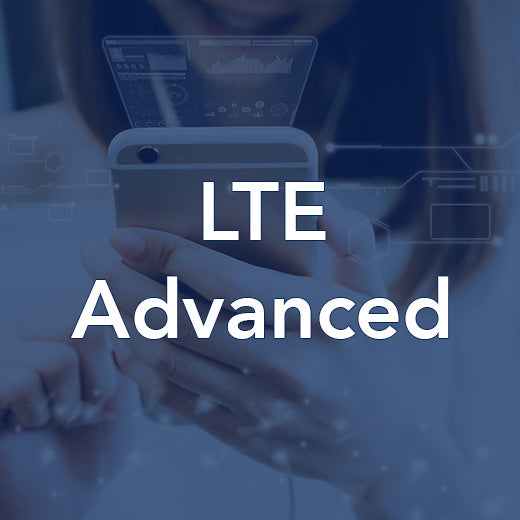
LTE Advanced
This LTE Advanced training course offered by Wray Castle covers essential topics such as an introduction to LTE, carrier aggregation, and additional enhancements in LTE Advanced. With a course code of LT1318, participants can expect to gain a comprehensive understanding of LTE technology and its advanced features. By enrolling in this course, individuals can enhance their knowledge and skills in LTE Advanced, making them more competitive in the telecommunications industry. Whether you are a beginner looking to learn the basics or a professional seeking to stay updated on the latest advancements in LTE technology, this training course offers valuable insights and practical information. Join us at Wray Castle and take your expertise in LTE Advanced to the next level. Course Contents Introduction to LTE Carrier Aggregation Additional Enhancements in LTE Advanced
POA: Private Course
-
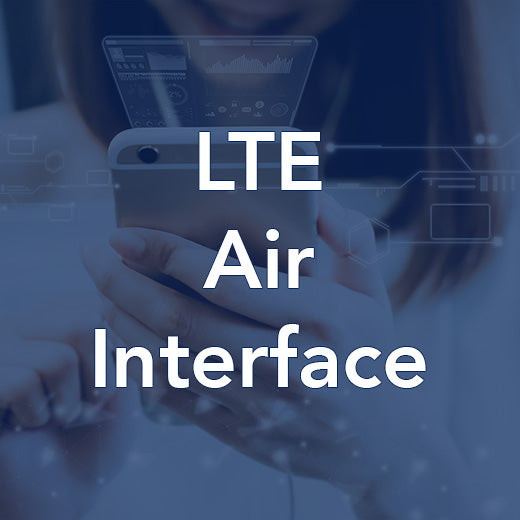
LTE Air Interface
Our LTE Air Interface Training Course is designed to provide a comprehensive understanding of the air interface for LTE radio access. This course covers OFDMA principles, access and non-access stratum protocols, channel structures, connectivity and mobility management procedures, as well as radio link control functions. Engineers involved in equipment design, operation, optimization, or monitoring of the LTE radio link will benefit greatly from this training. Participants are expected to have an engineering background with some knowledge of digital radio systems and general radio principles and techniques. A basic understanding of LTE and experience with 2G or 3G systems would also be beneficial. Topics covered in the course include LTE system architecture, E-UTRAN architecture and interfaces, OFDMA/SC-FDMA basic principles, MIMO concepts and implementation, physical layer structures, access and non-access stratum protocols, and more. Enhance your knowledge and skills in LTE radio access and stay ahead in the rapidly evolving telecommunications industry. Who would benefit Engineers involved with equipment design, operation, optimization or monitoring of the LTE radio link. Prerequisites An engineering background with some knowledge of digital radio systems and general radio principles and techniques is assumed. A basic understanding of LTE and experience of 2G or 3G systems would be beneficial. Topic Areas Include LTE system architecture E-UTRAN architecture and interfaces OFDMA/SC-FDMA basic principles Defining orthogonality OFDMA features and benefits The Fourier transform OFDMA/SC-FDMA transmitter and receiver chains Modulation and coding, MIMO and the Cyclic Prefix MIMO concepts and implementation Physical layer structures Access and non-access stratum protocols Logical, Transport and Physical channels RRC, PDCP, MAC and RLC functions Resource allocation and scheduling strategies LTE-Advanced concepts Lower layer procedures Connection establishment Radio resource management procedures Also available as a Self-Study Online Learning Programme, learn more.
POA: Private Course
-
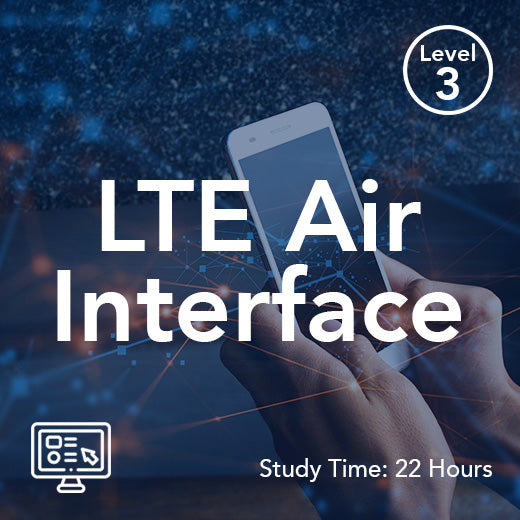
LTE Air Interface (On-Demand)
Our LTE Air Interface Training Course is designed to provide a comprehensive understanding of the air interface for LTE radio access. This course covers OFDMA principles, access and non-access stratum protocols, channel structures, connectivity and mobility management procedures, as well as radio link control functions. Engineers involved in equipment design, operation, optimization, or monitoring of the LTE radio link will benefit greatly from this training. Participants are expected to have an engineering background with some knowledge of digital radio systems and general radio principles and techniques. A basic understanding of LTE and experience with 2G or 3G systems would also be beneficial. Topics covered in the course include LTE system architecture, E-UTRAN architecture and interfaces, OFDMA/SC-FDMA basic principles, MIMO concepts and implementation, physical layer structures, access and non-access stratum protocols, and more. Enhance your knowledge and skills in LTE radio access and stay ahead in the rapidly evolving telecommunications industry. This self-paced on-demand distance learning course features illustrated course books, videos, tests and full tutor support. Who would benefit Engineers involved with equipment design, operation, optimization or monitoring of the LTE radio link. Prerequisites An engineering background with some knowledge of digital radio systems and general radio principles and techniques is assumed. A basic understanding of LTE and experience of 2G or 3G systems would be beneficial. Topic Areas Include LTE system architecture E-UTRAN architecture and interfaces OFDMA/SC-FDMA basic principles Defining orthogonality OFDMA features and benefits The Fourier transform OFDMA/SC-FDMA transmitter and receiver chains Modulation and coding, MIMO and the Cyclic Prefix MIMO concepts and implementation Physical layer structures Access and non-access stratum protocols Logical, Transport and Physical channels RRC, PDCP, MAC and RLC functions Resource allocation and scheduling strategies LTE-Advanced concepts Lower layer procedures Connection establishment Radio resource management procedures
£950.00





























































